 May 1, 2023 11:00 am
May 1, 2023 11:00 am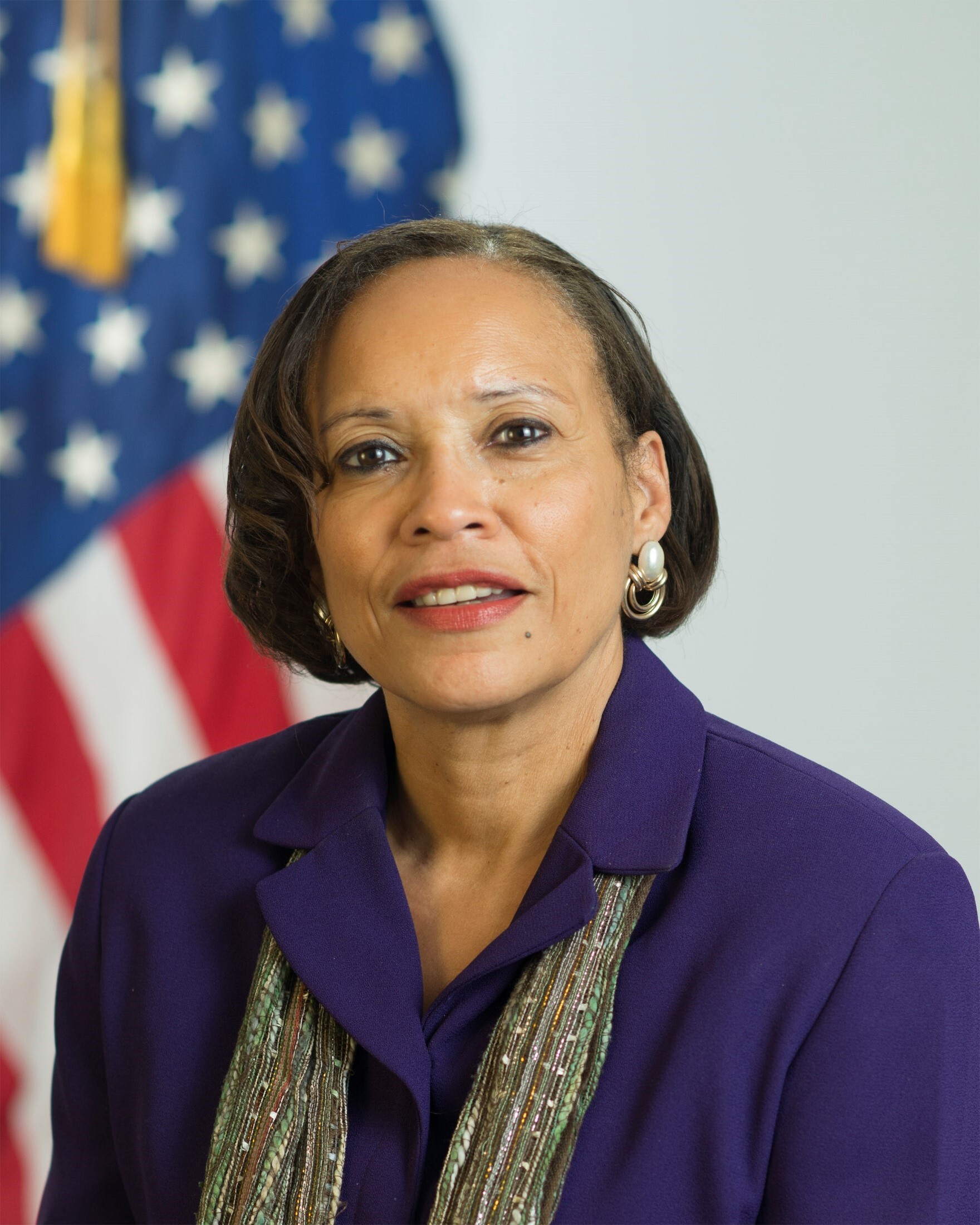
Jean Moody-Williams, RN, MPP
Deputy Center Director
Center for Clinical
Standards and Quality
Centers for Medicare & Medicaid
Services
 May 1, 2023 11:05 am
May 1, 2023 11:05 am
Chiquita Brooks-LaSure
Administrator
Centers for Medicare & Medicaid
Services
 May 1, 2023 11:15 am
May 1, 2023 11:15 am
Andrea Palm
Deputy
Secretary
U.S. Department of Health and Human Services
 May 1, 2023 11:25 am
May 1, 2023 11:25 am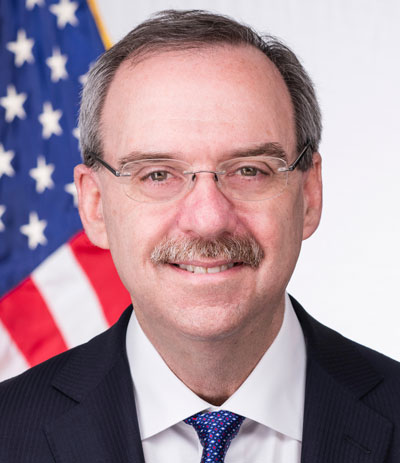
Dr. Lee A Fleisher, MD
Chief
Medical Officer and Director of the Center for Clinical Standards and
Quality
Centers for Medicare & Medicaid Services

Dr. Robert Califf
Commissioner
U.S. Food and Drug Administration

Dr. Rochelle Walensky, MD, MHP
Director
Centers for Disease Control and Prevention
& Administrator
Agency for Toxic Substances and Disease
Registry
The COVID-19 pandemic has impacted us all in one way or another and America’s healthcare workforce has certainly felt the weight of this public health emergency. While there is no doubt that the pandemic exposed vulnerabilities in our healthcare system; it also presented opportunities for innovation and creative solutions. Researchers worked continuously to answer fundamental questions about the virus, and transmission all while clinicians and physician scientists were testing therapeutics and vaccines. As we document lessons learned from the darkest days of the pandemic to prepare for future emergencies, it's apparent that medical science is facing a credibility crisis. Join this dynamic panel of clinical and government experts for a discussion about the factors behind public distrust, how COVID exacerbated the distrust and where we go from here to rebuild resilient communities.
 May 1, 2023 11:50 am
May 1, 2023 11:50 am
Dr. LaShawn McIver
Director
Office of Minority Health
Centers for
Medicare & Medicaid Services
The healthcare system continues to respond to emerging threats and persistent challenges that impact the communities served by CMS programs. An equitable resilient health care system can recover from those challenges and thrive during troubling circumstances. It is imperative that we build resilience in our health equity infrastructure to support thriving communities. Over the next 10 years, through the CMS Framework for Health Equity, the agency is committed to operationalize health equity across all its programs.
 May 1, 2023 12:10 pm
May 1, 2023 12:10 pm
Jean Moody-Williams, RN, MPP
Deputy Center Director
Center for Clinical
Standards and Quality
Centers for Medicare & Medicaid
Services

Susan E. Sheridan, MIM, MBA, DHL
Founding Member, Patients for Patient Safety
& Director, Patient Engagement Emeritus
Society to Improve Diagnosis in Medicine
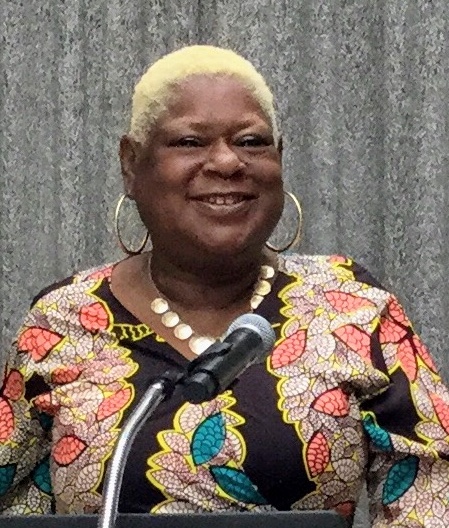
Dawn Edwards
Kidney Disease Warrior
The COVID-19 public health emergency put enormous stress on the health care system and disrupted many normal activities in hospitals and other facilities. Unfortunately, these stressors have caused safety problems for both patients and staff. Join this session for an intimate conversation with a dynamic panel of patients —focused on their experiences and the importance of restoring standards to rebuild a healthcare system in which safety is embedded in every step of the process with a renewed focus on the voices of the patient, family and caregivers.
 May 1, 2023 12:35 pm
May 1, 2023 12:35 pm
Dr. Meena Vythilingam (Moderator)
Senior Mental Health Advisor
Office of the
Assistant Secretary for Health
Department of Health and Human
Services

Dr. Elisabeth Kato, MD, MRP
Medical Officer
Agency for Healthcare
Research and Quality

Dr. Yngvild Olsen
Director
Center for Substance Abuse
Substance Abuse Mental Health
Services
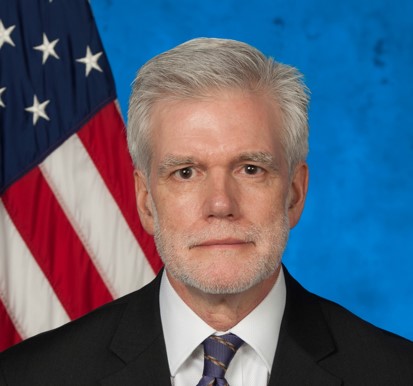
Marsden McGuire, M.D., M.B.A.
Director, Continuum of Care and General Mental
Health
Office of Mental Health and Suicide Prevention Department
of Veterans Affairs
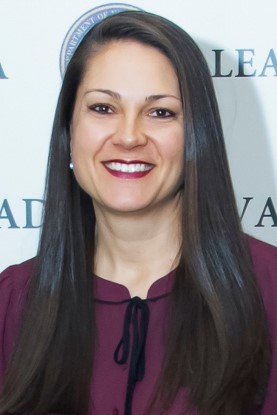
Jessica Walker, Ph.D., L.P.
National Clinical Suicide Prevention Telehealth
Coordinator
Office of Mental Health and Suicide Prevention
Department of Veterans Affairs
CMS’ Behavioral Health Strategy outlines goals to support the whole emotional and mental well-being of a person, and promote person-centered behavioral health care. This is aligned with the HHS Roadmap for Behavioral Health Integration, which aims to coordinate behavioral health work across HHS operating divisions. Rising numbers of Americans living with mental disorders including substance use disorders (SUD) and suicidality appears to have been exacerbated by the COVID-19 pandemic, making the integration of behavioral and physical health an urgent need. This session will address these concerns, focusing on best practices for mental health and SUD services and supports across HHS and the Department of Veterans Affairs (VA), each with a unique perspective on the subject matter and people impacted.
 May 1, 2023 12:35 pm
May 1, 2023 12:35 pm
Dr. Terrence O'Malley
Corresponding Faculty
Harvard Medical
School

Lorraine Wickiser, RN
Nurse/Consultant/RN Centers for Medicare &
Medicaid Services
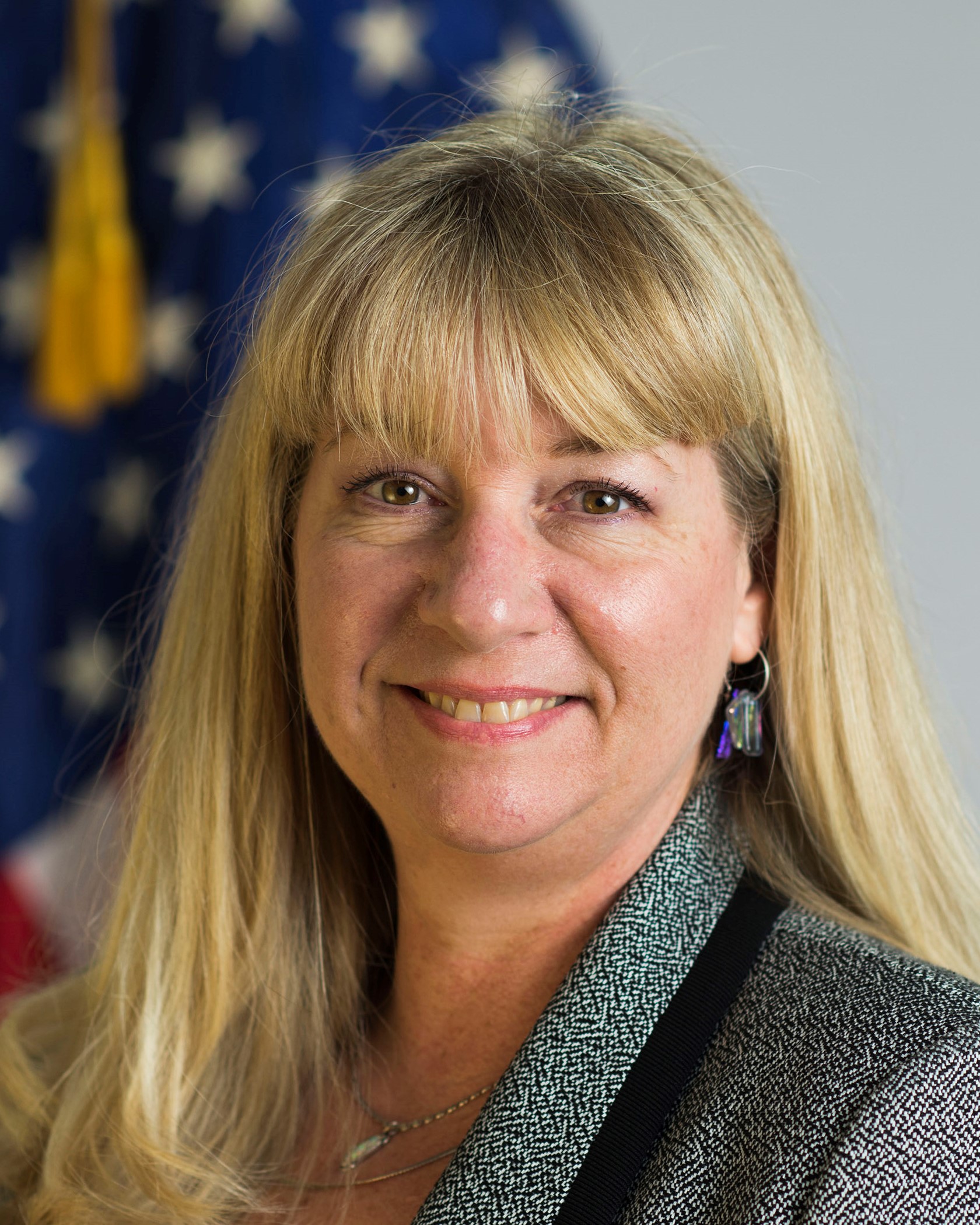
Beth Connor, RN
Health
Insurance Specialist
Centers for Medicare & Medicaid
Services
Brenda Akinnagbe
Policy
Analyst
Office of the National Coordinator
Centers for
Medicare & Medicaid Services

Dr. Constantine Lyketsos, MD, MHS, FACLP, FACPsych, FACNP, FAPM,
DFAPA
Elizabeth Plank
Althouse Professor & Vice Chair of Psychiatry,School of Medicine
Johns Hopkins University
&
Chair of Psychiatry,
Johns
Hopkins Bayview Medical Center

Elizabeth Palena Hall, MIS, MBA, RN
Health Insurance
Centers for Medicare & Medicaid Services
Advancing electronic health data exchange is crucial to communicate the needs of individuals for care planning and care coordination, and enables person centered care/data to follow the person across the trajectory of their care, including acute care, post-acute care, behavioral Health. One of the goals of the Improving Medicare Post-Acute Care Transformation Act (IMPACT) is to support the exchange of key health data important for care planning, such as cognitive status, functional status, and special services, treatments and interventions, as well as improve quality of care and health outcomes, enhance coordination of care, and to support person centered goals. Panel members from CMS, ONC, and industry will examine opportunities and gaps within the healthcare interoperable ecosystem and discuss the broader topic of standardized data and its role in promoting Health.
 May 1, 2023 12:35 pm
May 1, 2023 12:35 pm
Samantha Richardson (Moderator)
Director
Governance and Impact
Analysis
Centers for Medicare & Medicaid Services

Darlene Fleischmann
Technical Advisor for Policy
Centers for Medicare
& Medicaid Services
In September 2022, CMS released the Make Your Voice Heard [RFI], which sought public comment on a variety of topics. Response to this RFI was robust, included extensive stakeholder insight from more than 4,000 specific comments received from approximately 900 respondents. Commenters included a broad range of our stakeholders, individuals and organizations, across the health system. The data we received identified specific challenges and pain points for beneficiaries and clinicians, including health equity and access to care, workforce experiences, behavioral and mental health services, and the impact of Telehealth as a result of the COVID-19 PHE waivers and flexibilities. The RFI commenters also shared diverse suggested recommendations for improvement in such areas as accessing care and advancing health equity. This session will also explore details and key findings specific to understanding the insight we received.
 May 1, 2023 12:35 pm
May 1, 2023 12:35 pm
Dr. Christine Blake-Smith, DO
Family Medicine Physician
Portland West Family
Practice

Jennifer Brockman, MHA, BSN, RN
Chief Clinical Program Officer
Iowa Healthcare
Collaborative

Rachel Duncan, PharmD, BCPS, BCCCP
Clinical Pharmacist
Iowa Healthcare
Collaborative
Stader Opioid Consultants

Dr. Don Stader, MD, FACEP
Founder and President
Iowa Healthcare
Collaborative
Stader Opioid Consultants
Opioid stewardship programs are designed to reduce opioid overuse, misuse, and abuse, ultimately helping prevent addiction while treating pain effectively. During this presentation, panelists will address the unique challenges surrounding opioid stewardship experienced by rural providers as well as strategies used to ensure successful implementation of opioid stewardship practices. The moderator and panelists will discuss methodologies and strategies to help attendees better understand opioid stewardship, how to address local challenges, and discuss implementation strategies to improve sustainability.
 May 1, 2023 12:35 pm
May 1, 2023 12:35 pm
Dr. Chiao Wen Lan (Moderator)
Social Scientist
Health Services Advisory
Group

Dr. Shika Pappoe
Regional
Medical Officer
Strive Health

Dr. Deidra Crews
Professor
of Medicine
Johns Hopkins University School of Medicine

Dr. Dinushika Mohottige
Assistant Professor
Icahn School of Medicine at Mount Sinai
Health disparities continue to persist among End Stage Renal Disease patients (ESRD), and the causes of them are complex and interrelated. In addition to the structural barriers impeding patients’ access to care, patients’ complex health-related social needs also affect their short-term and long-term health outcomes. Data from the ESRD Quality Reporting System were analyzed to investigate issues related to accessing care, in conjunction with the measures of social determinants of Health to identify areas needing targeted interventions. Data show that patients residing in under-resourced neighborhoods experience barriers to care, including reduced access to home dialysis programs and decreased transplant waitlisting. Disparities persist throughout the kidney transplantation process, including wait time as well as receipt of transplant. Strategies to advance health equity in the ESRD community require multilevel interventions. Research suggests that equity training, including cultural humility training and structural competency, could strengthen the capacity of health care providers to recognize and respond to structural issues at various levels. Evidence-based interventions to reduce health disparities in underserved populations, as well as case studies from the most disadvantaged neighborhoods, can provide a roadmap with innovative approaches to coordinate care and advance health equity in the ESRD community.
 May 1, 2023 12:35 pm
May 1, 2023 12:35 pm
Melanie Brown, PhD, MPH
Technical Director
Disabled and Elderly Health
Program's Group
Centers for Medicare and Medicaid Services

Brian MacDaid
Director
Division of Quality Assurance
Office of Long-Term
Living Bureau of Quality Assurance & Program
Analytics
Pennsylvania Health and Human Services
In this session, the Center for Medicaid and CHIP Services (CMCS) and a representative from Pennsylvania Health and Human Services (PA HHS) will discuss progress related to strengthening home and community-based services (HCBS) and advancing health equity in Medicaid. The session will cover current efforts related to quality measurement, measure development, publicly reporting on HCBS quality, and quality activities to promote equity. The session will close with a discussion between the CMCS and PA HHS representatives covering the topics of data stratification, gaps in measures, involving stakeholders in designing measures, and others.
 May 1, 2023 12:35 pm
May 1, 2023 12:35 pm
Dr. Jessica Maskut
Technical Director
Data and Policy Analytics
Group
Office of Minority Health
Centers for Medicare and
Medicaid Services

Dr. Nancy Chiles Shaffer
Technical Director
Data and Policy Analytics
Group
Office of Minority Health
Centers for Medicare and
Medicaid Services
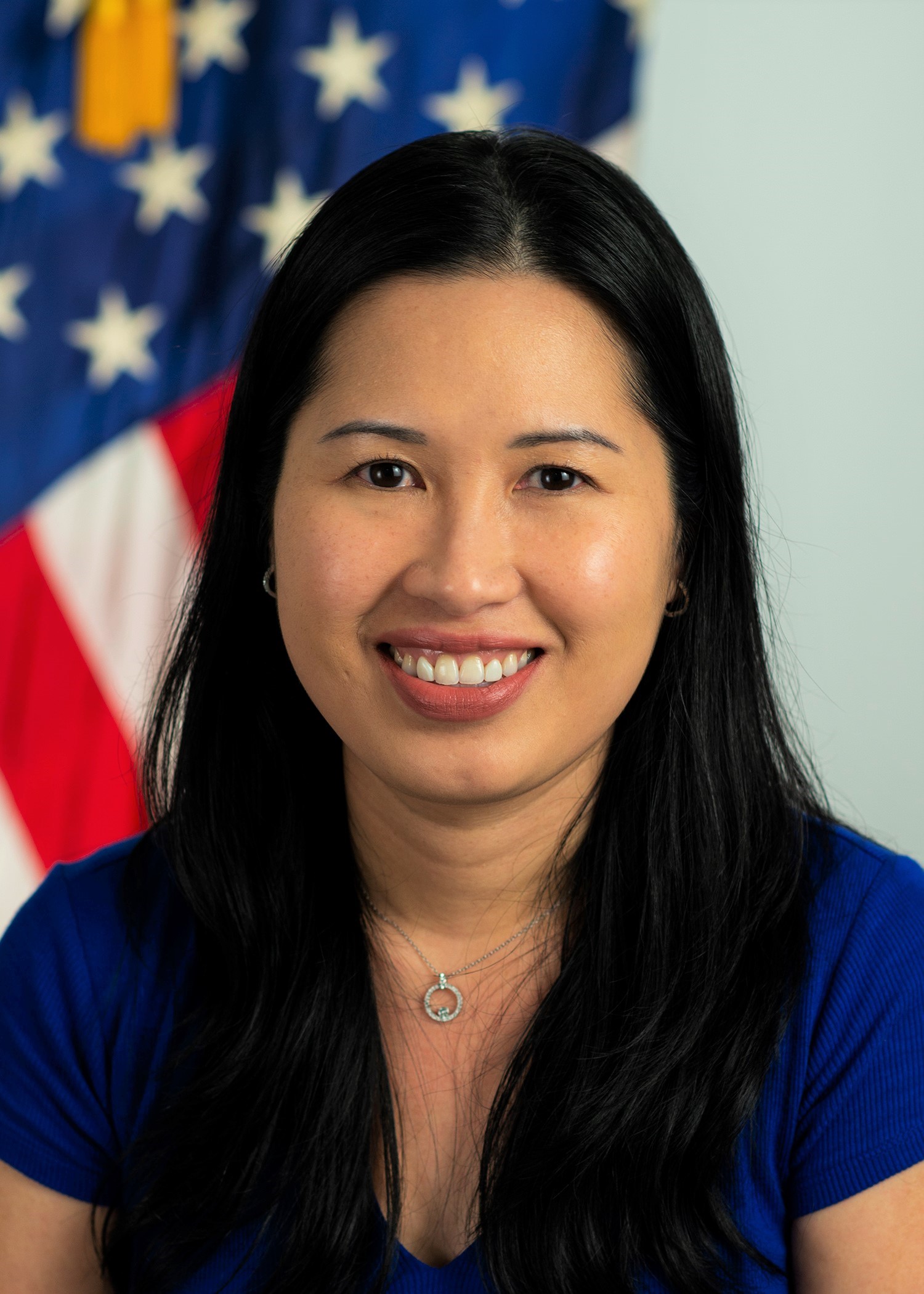
Meagan Khau
Director
Data and Policy Analytics
Group
Office of Minority Health
Centers for Medicare and
Medicaid Services

Abdugheni Ubul
Health
Statistician
Office of Minority Health
Centers for Medicare and
Medicaid Services
This session from CMS’ Office of Minority Health (OMH) will provide updates on the status of CMS health equity data and several of the tools that utilize the data to assess the landscape and identify disparities. The panel will review 1) the recently released CMS OMH white paper "The Path Forward: Improving Data to Advance Health Equity Solutions", which includes the current state of health equity data, progress to date, and future actions for improvement; 2) an update to the Health Equity Summary Score (HESS) and the HESS Dashboard, recently piloted for Medicare Advantage Plans to be able to view their performance on addressing health disparities; and 3) the Mapping Medicare Disparities (MMD) Tool, which is an interactive map that can be utilized to identify areas of disparities between various subgroups of Medicare beneficiaries.
 May 1, 2023 12:35 pm
May 1, 2023 12:35 pm
Stacy Harper, RDH, MPH
Health Insurance Specialist
Center for Medicare
and Medicaid Services

Thelma Baker, MSHA, RHIA,CPHQ
Chief Operating Officer and Principal
Consultant
Health Quality Innovators

Donald Dipette, MD, FACP, FAHA
Distinguished Professor
University of South
Carolina School of Medicine

Vicky Kolar, EMT-P, CPHQ
Quality Specialist
CCME (a partner with Health
Quality Innovators) South Carolina QIN-QIO
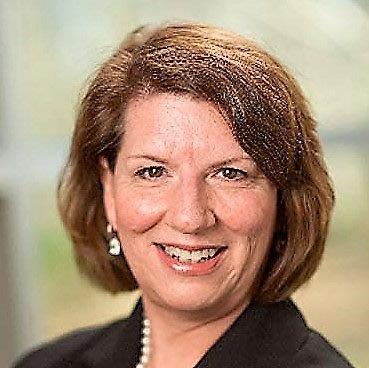
Karen Southard, RN, MHA, CPHQ
State Program Director
CCME (a partner with
Health Quality Innovators) South Carolina QIN-QIO
Over 50% of adults in the US have hypertension, while only one in four have high blood pressure under control. The US Surgeon General issued a Call to Action for Hypertension Control in 2020. Across a QIN-QIO service area, hypertension control reflected the national statistics which continued to decline in 2021, further contributing to chronic conditions impacting the quality of life for Medicare beneficiaries. This decrease created an urgency to help providers evaluate current treatments and implement impactful changes.
In June 2022, HEARTS In America (HEARTS) was introduced, an international evidence-based program developed by the World Health Organization and led by the Pan American Health Organization. HEARTS targets hypertension control through standardized treatment protocols while reducing health disparities.
Through a peer-to-peer interactive learning virtual platform, a root cause analysis was performed regarding variations in treatment of hypertension. Over six months, the QIN-QIO engaged 550 participants in biweekly events discussing the initiative, critical drivers of hypertension, treatment protocols, and implementation.
Primary Care participants in SC implemented HEARTS in five communities with a potential impact of 116,667 beneficiaries. Several providers are implementing the HEARTS modules, based on their identified population. The outcomes target increased Blood Pressure Control, improved provider workflow through team-based care, and reduction in disparities.
 May 1, 2023 12:35 pm
May 1, 2023 12:35 pm
Min Lu
CCSQ ServiceNow Tech
Lead
Information Systems Group
Division of Shared Services and
User Experience
Centers for Medicare & Medicaid Services

Jay Vancil
CCSQ ServiceNow
Operation Lead
Information Systems Group
Division of Shared
Services and User Experience
Centers for Medicare & Medicaid
Services
CCSQ Support Central portal provides our healthcare community with the advanced-level program and technical support to help customers meet CMS quality reporting requirements – it includes quick links and the ability to track or submit a ticket; you can also sign up for newsletters, so you never miss a beat. Our customer-focused interface is designed to meet you where you are. In 2022 we added the ability to schedule a callback and live chat with the CCSQ Service Center. Come join us to learn more and meet our automated assistant Chat and Resource Line (C.A.R.L.).
 May 1, 2023 12:35 pm
May 1, 2023 12:35 pm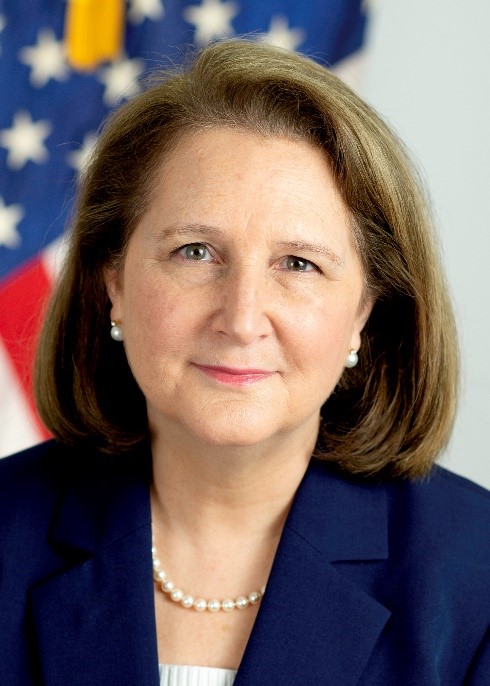
Dr. Michelle Schreiber, MD
Deputy Director
Center for Clinical Standards
and Quality
Centers for Medicare & Medicaid Services
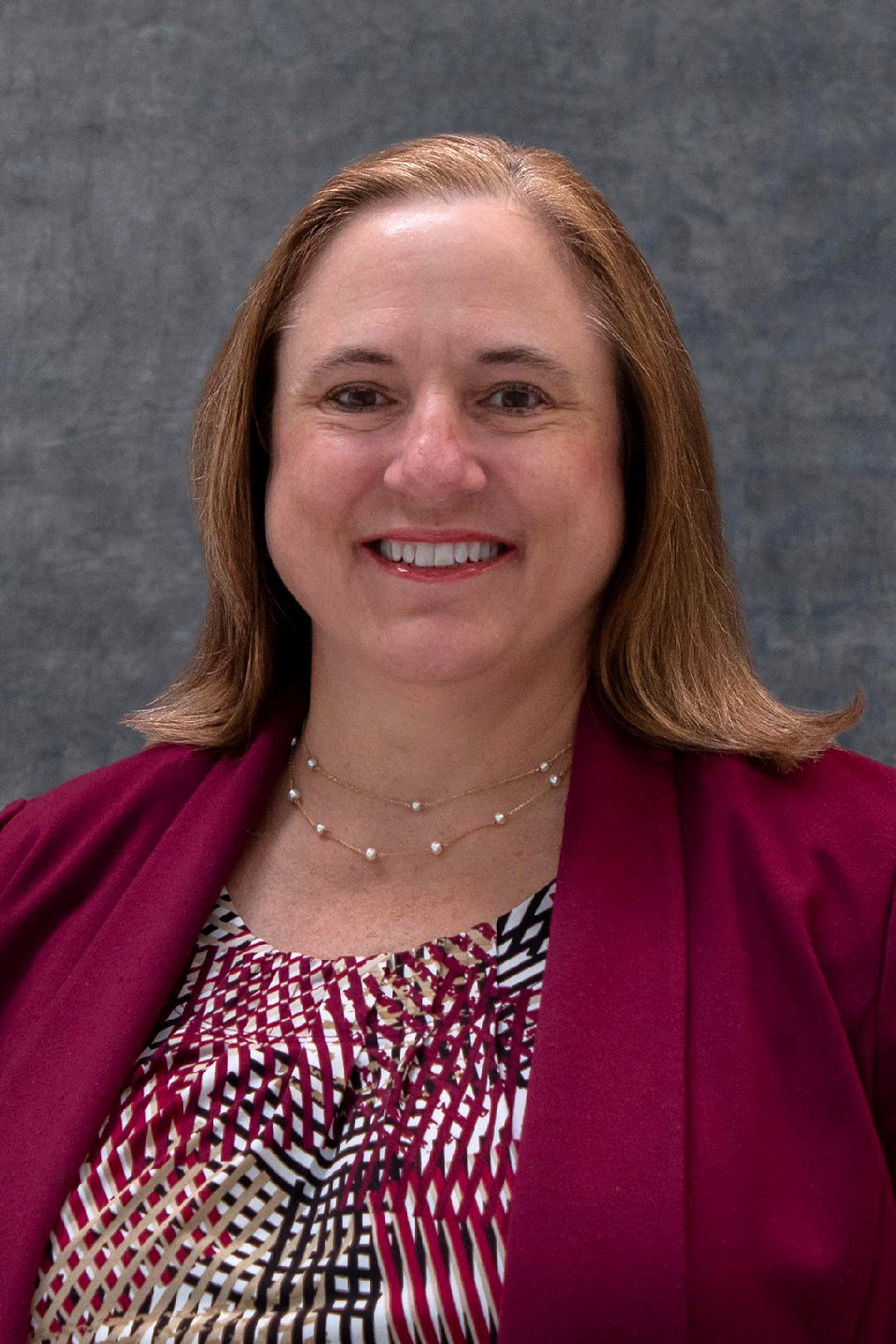
Erin Grace, MHA
Deputy
Director
Center for Quality Improvement and Patient Safety
Agency for Healthcare Research and Quality

Arjun Srinivasan, MD
Associate Director
Healthcare Associated
Infection Prevention Programs
Division of Healthcare Quality
Promotion
Centers for Disease Control and Prevention
First, Do No Harm – this statement from the Hippocratic Oath is as relevant
today as it was thousands of years ago. It is the imperative for all who work in
healthcare, to have as a first priority keeping individuals safe and free from
preventable harm. Over two decades have passed since the reports on “To Err is
Human” and “Crossing the Quality Chasm” which described the gaps
in quality and safety. Multiple initiatives have been developed and implemented over
the years to improve in these areas – some with success. For example,
healthcare associated infections had significantly declined pre-pandemic. However,
despite some success, there remain significant opportunities to improve safety, as
noted in the recent OIG report (May 2022) and NEJM article (January 2023) which
demonstrate nearly a quarter of hospitalized patients still experience harm.
Track: During the Covid-19 pandemic, safety metrics showed a
significant decline, including a 40% worsening of healthcare acquired infections,
and a rise in skilled nursing facility falls and pressure injuries. In November,
2022, HHS and Secretary Becerra called together a group of leading healthcare
CEO’s and patient advocates to re-commit to patient safety. We call upon all
who work in healthcare to re-evaluate, re-design, and re-energize initiatives to
reduce preventable harm. In this session we will trace the history of safety
performance in healthcare, identify key strategies for achieving improvements, and
discuss key strategies that CMS (and other federal agencies) could use to best
support patient safety.
 May 1, 2023 02:20 pm
May 1, 2023 02:20 pm
Jenny Keroack
Senior Policy
Advisor
Office of Climate Change and Health Equity
Office of
the Assistant Secretary for Health
U.S Department of Health &
Human Services
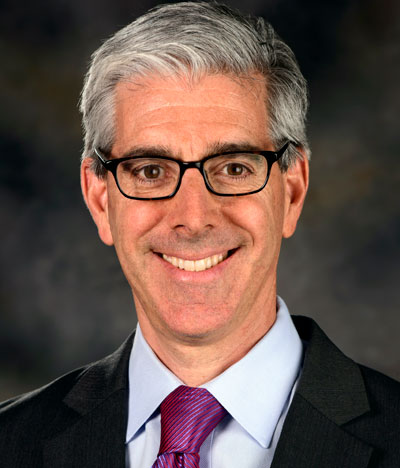
John Balbus, MD
Acting
Director
Office of Climate Change and Health Equity
Office of
the Assistant Secretary for Health
U.S Department of Health &
Human Services

Aparna Bole, MD
Special
Expert
Agency for Healthcare Research and Quality & Community
Resilience
Lead Office of Climate Change and Health
Equity
Office of the Assistant Secretary for Health
U.S. Department of Health
& Human Services

Joe McCannon
Senior
Advisor
Agency for Healthcare Research and Quality
and
Community Resilience Lead
Office of Climate Change and Health
Equity
Office of the Assistant Secretary for Health
U.S.
Department of Health & Human Services
The cumulative impacts of climate change represent the
greatest threat to global public health of the coming decades, putting vulnerable
communities at great risk and buffeting a healthcare system already at the limits of
its capacity. This session from the HHS Office of Climate Change and Health Equity
will describe this challenge, documenting the impacts of climate change on every
dimension of Quality
as well as potential solutions. The presenters will
introduce existing resources to support rapid action by health care organizations,
including the tax incentives, grants and technical assistance made available by the
Inflation Reduction Act, HHS agencies and other federal departments.
 May 1, 2023 02:20 pm
May 1, 2023 02:20 pm
Dr. Michelle Schreiber, MD (Moderator)
Deputy Director
Center for Clinical Standards
and Quality
Centers for Medicare & Medicaid Services

Doug Jacobs, MD, MPH
Chief
Transformation Officer
Center for Medicare
Centers for Medicare
& Medicaid Services

Susannah Bernheim, MD, MHS
Chief Quality Officer & Senior
Advisor
Center for Medicare and Medicaid Innovation
Centers
for Medicare & Medicaid Services
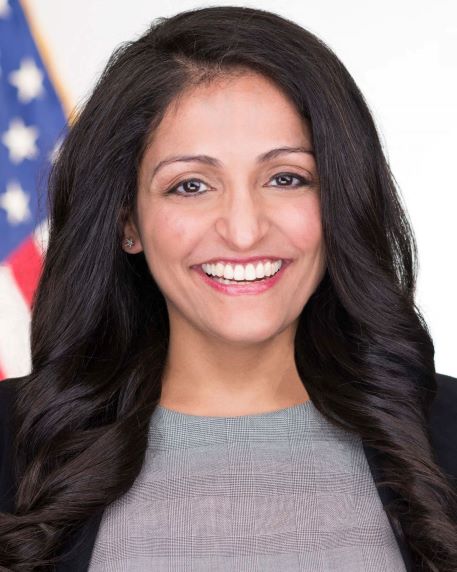
Aditi Mallick, MD
Chief
Medical Officer
Center for Medicaid and CHIP Services
Centers
for Medicare & Medicaid Services
In 2022 the Centers for Medicare & Medicaid Services
(CMS) debuted the CMS National Quality Strategy, a set of goals to raise the bar for
a resilient, high-value health care system with a mission and vision aimed at
promoting quality outcomes, safety, equity, and accessibility for all individuals.
As the healthcare quality ecosystem continues to evolve at a rapid pace, we continue
to coordinate our quality activities and efforts to reach our goals and measures our
success with objectives and targets.
Track: After a year of
listening and incorporating your feedback, we invite you to join us for an update on
the CMS National Quality Strategy and the work we are doing to align quality
measures across CMS as a part of the Universal Foundation.
 May 1, 2023 02:20 pm
May 1, 2023 02:20 pmElisabeth Myers, MBA
Deputy
Director
Office of Policy
Office of the National Coordinator
for Health
Information Technology

Matthew Rahn
Acting
Director
Standards Division
Office of the National Coordinator
for Health Information Technology
Kyle Cobb, MS
Branch
Chief
Office of Technology
Office of the National Coordinator
for Health Information Technology
The Office of the National Coordinator for Health Information Technology (ONC) developed the United States Core Data for Interoperability (USCDI) as a standardized set of health data classes and constituent data elements for nationwide, interoperable health information exchange. ONC established an expansion process for USCDI that creates a “rising floor” over time based on input from industry and federal partners and consideration of various factors such as impact, feasibility, and standards maturity. Subsequently, ONC launched USCDI+, a service that ONC provides to USCDI+ partners, in collaboration with their key stakeholders, who need to establish, harmonize, and extend the use of interoperable datasets that advance beyond the core data in the USCDI to meet agency or use-case specific programmatic requirements. USCDI and USCDI+ support efforts to share health data more rapidly to ensure effective and equitable care across the United States. As part of the USCDI+ initiative, ONC and CMS are collaborating around the identification of a core data set to support quality measurement. Join ONC presenters as they discuss how USCDI+ Quality can advance goals of interoperability and quality improvement across CMS programs and how ONC is working with partners to address gaps in quality measurement data standards across the health care ecosystem.
 May 1, 2023 03:10 pm
May 1, 2023 03:10 pm
Dr. Arkaprava Deb (Moderator)
Medical Officer
U.S. Department of Health and
Human Services

Dr. Elisabeth Kato, MD, MRP
Medical Officer
Agency for Healthcare Research and Quality

Dr. Yngvild Olsen
Director
Center for Substance
Abuse
Substance Abuse Mental Health Services
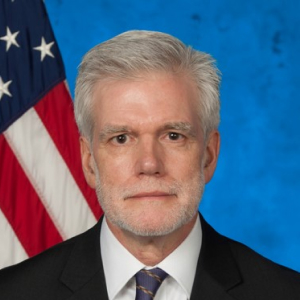
Marsden McGuire, M.D., M.B.A.
Director
Continuum of Care and General Mental
Health
Office of Mental Health and Suicide
Prevention
Department of Veterans Affairs
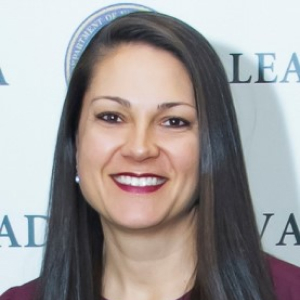
Jessica Walker, Ph.D., L.P.
National Clinical Suicide Prevention Telehealth
Coordinator
Office of Mental Health and Suicide
Prevention
Department of Veterans Affairs
CMS’ Behavioral Health Strategy outlines goals to support the whole emotional and mental well-being of a person, and promote person-centered behavioral health care. This is aligned with the HHS Roadmap for Behavioral Health Integration, which aims to coordinate behavioral health work across HHS operating divisions. Rising numbers of Americans living with mental disorders including substance use disorders (SUD) and suicidality appears to have been exacerbated by the COVID-19 pandemic, making the integration of behavioral and physical health an urgent need. This roundtable discussion will be a continuation of the conversation started in the educational session, “Best Practices in Mental Health and Substance Use Disorders Services.” Hear more from the presenters on taking the best practices shared earlier and integrating them into practice at all levels.
 May 1, 2023 03:10 pm
May 1, 2023 03:10 pm
Wendy Gary, MHA
Chief
Operating Officer
Avar Consulting Executive Director
BFCC-QIO
Operations Project Director
BFCC NCORC

Brian Preslopsky
Vice
President
Avar Consulting Analytic Director
BFCC NCORC

Stephanie Fry
Senior Study
Director
Westat Deputy Director
BFCC NCORC
First, Do No Harm – this statement from the Hippocratic Oath is as relevant today as it was thousands of years ago. It is the imperative for all who work in healthcare, to have as a first priority keeping individuals safe and free from preventable harm. Over two decades have passed since the reports on “To Err is Human” and “Crossing the Quality Chasm” which described the gaps in quality and safety.
Multiple initiatives have been developed and implemented over the years to improve in these areas – some with success. For example, healthcare associated infections had significantly declined pre-pandemic. However, despite some success, there remain significant opportunities to improve safety, as noted in the recent OIG report (May 2022) and NEJM article (January 2023) which demonstrate nearly a quarter of hospitalized patients still experience harm.
Track: During the Covid-19 pandemic, safety metrics showed a significant decline,including a 40% worsening of healthcare acquired infections, and a rise in skilled nursing facility falls and pressure injuries. In November, 2022, HHS and Secretary Becerra called together a group of leading healthcare CEO’s and patient advocates to re-commit to patient safety. We call upon all who work in healthcare to re- evaluate, re-design, and re-energize initiatives to reduce preventable harm. In this session we will trace the history of safety performance in healthcare, identify key strategies for achieving improvements, and discuss key strategies that CMS (and other federal agencies) could use to best support patient safety.
 May 1, 2023 03:10 pm
May 1, 2023 03:10 pm
Andrew Snyder (moderator)
Health Insurance Specialist
Center for Medicaid and CHIP
Services
Centers for Medicare & Medicaid Services

Sarah Holland, MS
CEO
Virginia Health Catalyst
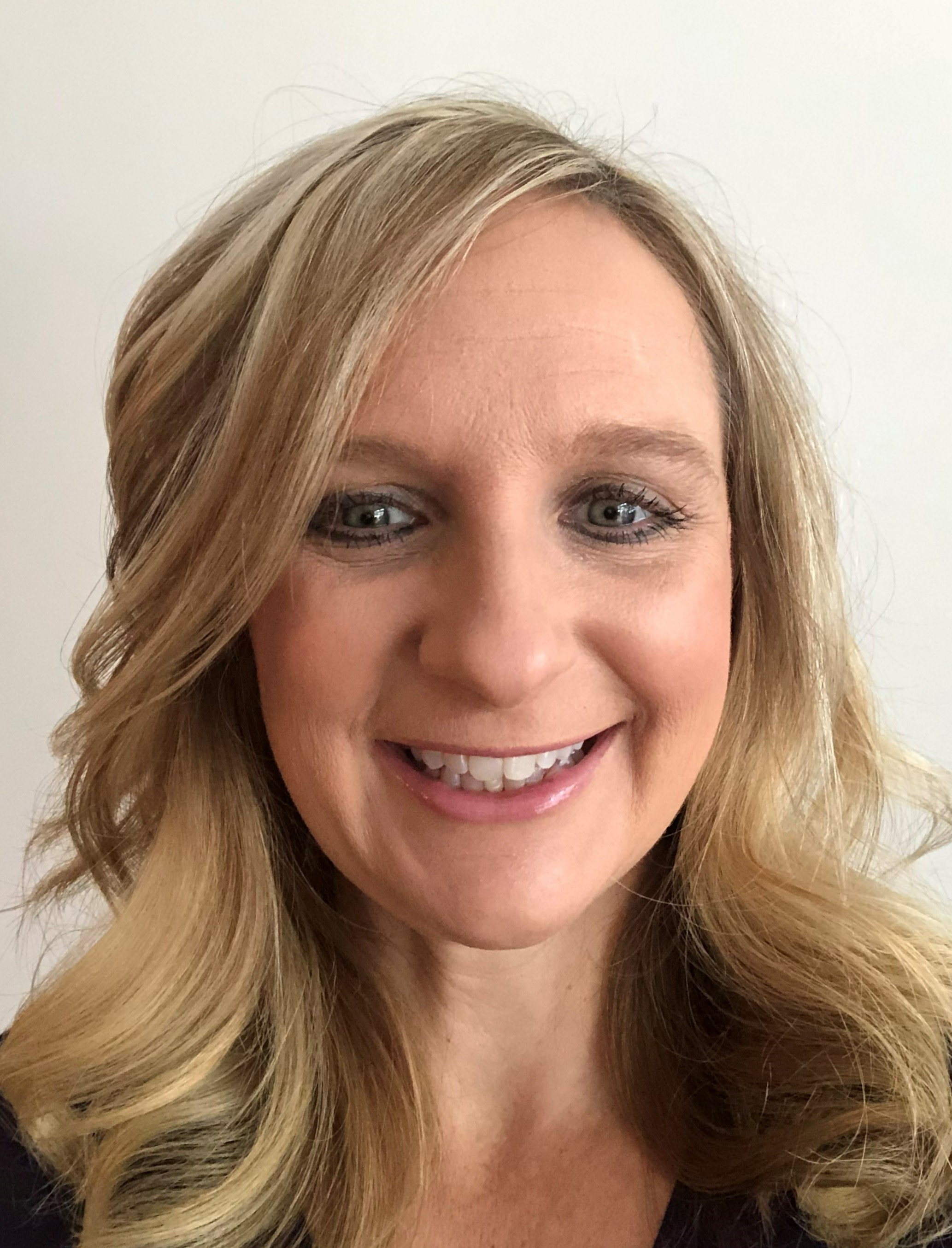
Michele Griguts, DDS
Dental
Director
New York State Medicaid

Irene V. Hilton, DDS, MPH, FACD
Dental Consultant
National Network for Oral
Health Access
This session will focus on a blend of CMS work with partners and communities to
improve oral health. Presentations include discussions on the two Oral Health
Integration tools used by Medicaid Oral Health Integration Learning Collaborative
participants. This will be followed by a discussion on the New York State Dental
Insurance Policy team’s participation in the CMS Quality Improvement
Collaborative
Advancing Prevention and Reducing Caries in Medicaid. This
session will review strategies for stakeholders to affect change and public
acceptance of challenges. The final presentation will focus on the training and
technical assistance strategies used to assist over 1,000 health center dental
practices to implement and improve on the HRSA UDS Sealants Measure and the role of
quality improvement in identifying strategies to increase sealant rates and mitigate
the impact of COVID-19.
 May 1, 2023 03:10 pm
May 1, 2023 03:10 pm
Temi Olafunmiloye
Manager
Health Equity
Health Quality Innovators

Dr. Bruce Spurlock
President and CEO
Cynosure Health
How do we approach health equity in a way that's attainable across hospital settings? This session will feature an in-depth look at the variety of methods used by hospitals of all sizes, types, and available resources to identify and address equity and the role in improving outcomes among the patients we serve.
First, Health Quality Innovators (HQI) will share their process of partnering with hospitals to remove barriers to action on health equity, especially those in communities with low racial and ethnic diversity. HQI creates reports using the Area Deprivation Index and the Social Vulnerability Index to supplement and contextualize available claims and provider data. These reports help to raise awareness of SDOH that may contribute to disparities. HQI will be sharing tools and resources that have resulted in hospitals implementing equity-based interventions such as the use of Z codes to capture patient-level SDOH screening results, and collaboration with outside funders to support identified needs
Second, Cynosure Health will provide a practical overview of the new CMS Final Rule requiring hospitals to screen patients for Social Drivers of Health (SDOH) that will feature: (1) Hospital-tested resources and tips, including how to build trust with patients to promote understanding and engagement; (2) Steps for building action plans to support your community’s well-being, such as how to engage patients, families, and community members in the screening and referral processes; and (3) How to interpret data in support of your existing quality and safety reporting efforts. In addition, insights will be shared from hospital champions from across the various stages of the implementation of a SDOH screening process.
 May 1, 2023 03:10 pm
May 1, 2023 03:10 pm
Lisa Stocks RN, MSN, FNP (moderator)
National Faculty Co-Chair
ESRD Treatment
Choices Learning Collaborative

Enver Akalin, MD
Montefiore
Medical Center
Professor of Medicine and Surgery
Medical
Director
Kidney Transplant Program

Joseph R. Scalea, MD
Director of Kidney Transplantation and Transplant
Quality
Vice Chair of Innovation and Commercialization
Professor of
Surgery
Medical University of South Carolina
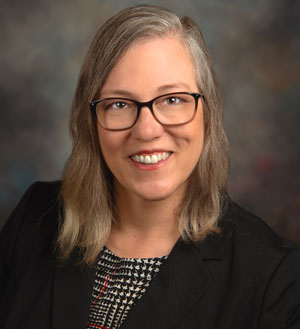
Heather Wertin, MPH, BSN, RN
Program Manager
Abdominal Organ
Transplant
Barnes-Jewish Hospital
The End Stage Renal Disease Treatment Choices Learning Collaborative (ETCLC),
established in the Fall of 2021, brings together more than 80% of the transplant
centers, more than 90% of Organ Procurement Organizations and two of the largest
donor hospitals in each of the eleven (11) donor service areas (DSA) in the US. The
aims of this national collaborative include: 1) increasing deceased donor kidney
transplants; 2) decreasing the national discard rate of all procured kidneys; and 3)
increasing the percentage of recovered kidneys greater to or equal to 60 Kidney
Donor Profile Index (KDPI) for transplant.
Track: Over the past year, members
of the ETCLC community, comprised of 25 Quality Improvement teams, have shared
best practices during monthly quality improvement meetings. These best practices
have reduced discards through surgical decision making, efficient communication,
and effective institutional practice.
During this session, the presenters will provide practices employed to honor the “yes” mindset for accepting marginal kidneys and working closely with individual kidney transplant candidates to increase utilization of >60-year-old and Donation after Circulatory Death (DCD) kidneys and contribute to reducing the kidney discard rate.
 May 1, 2023 03:10 pm
May 1, 2023 03:10 pm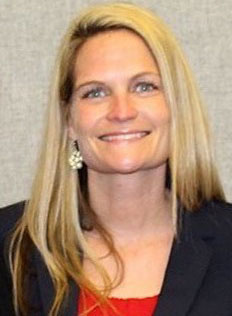
Ashley Sirianni, DNP, FNP-BC
Medical Director
South Carolina Department of
Health and Human Services

Tim Nix, MA, LPC
Director
of Child Health and Well Being
South Carolina Department of Social
Services
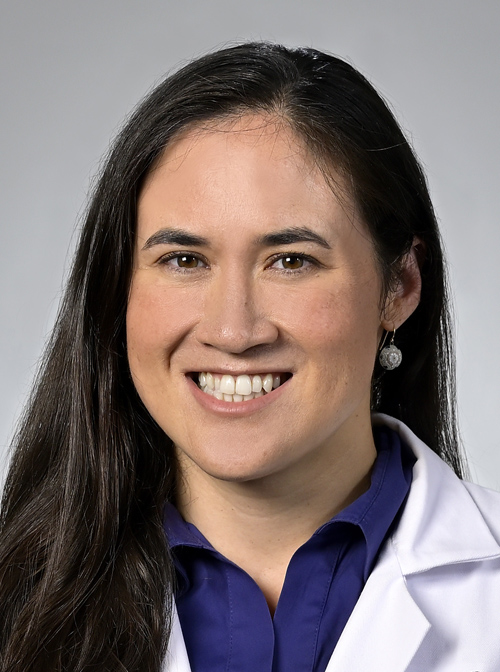
Jessica Lee (Moderator)
Medical
Officer
Division of Quality and Health Outcomes
Center for
Medicaid and CHIP Services
Centers for Medicare & Medicaid
Services

Kathleen Domm, MD, FAAP
Foster Care Medical Director
Select Health of
South Carolina
The Center for Medicaid and CHIP Services (CMCS) partners with states to share promising practices and provide technical assistance to drive improvement in care for Medicaid and CHIP beneficiaries. This session will focus on the CMCS Foster Care affinity group and how South Carolina's Medicaid program utilized partnerships to work towards sustainable improvements. CMCS will facilitate a panel discussion with representatives from South Carolina’s Medicaid agency, foster care agency, and a managed care organization.
 May 1, 2023 03:10 pm
May 1, 2023 03:10 pm
Darci Graves, MPP, MA, (moderator)
Co-chair
Rural Health Council
Centers for
Medicare & Medicaid Services
&
Technical Advisor
Office of Minority
Health Centers for Medicare & Medicaid
Services
Thomas Bane, LMSW
Special
Assistant to the Regional Administrator
Centers for Medicare &
Medicaid Services
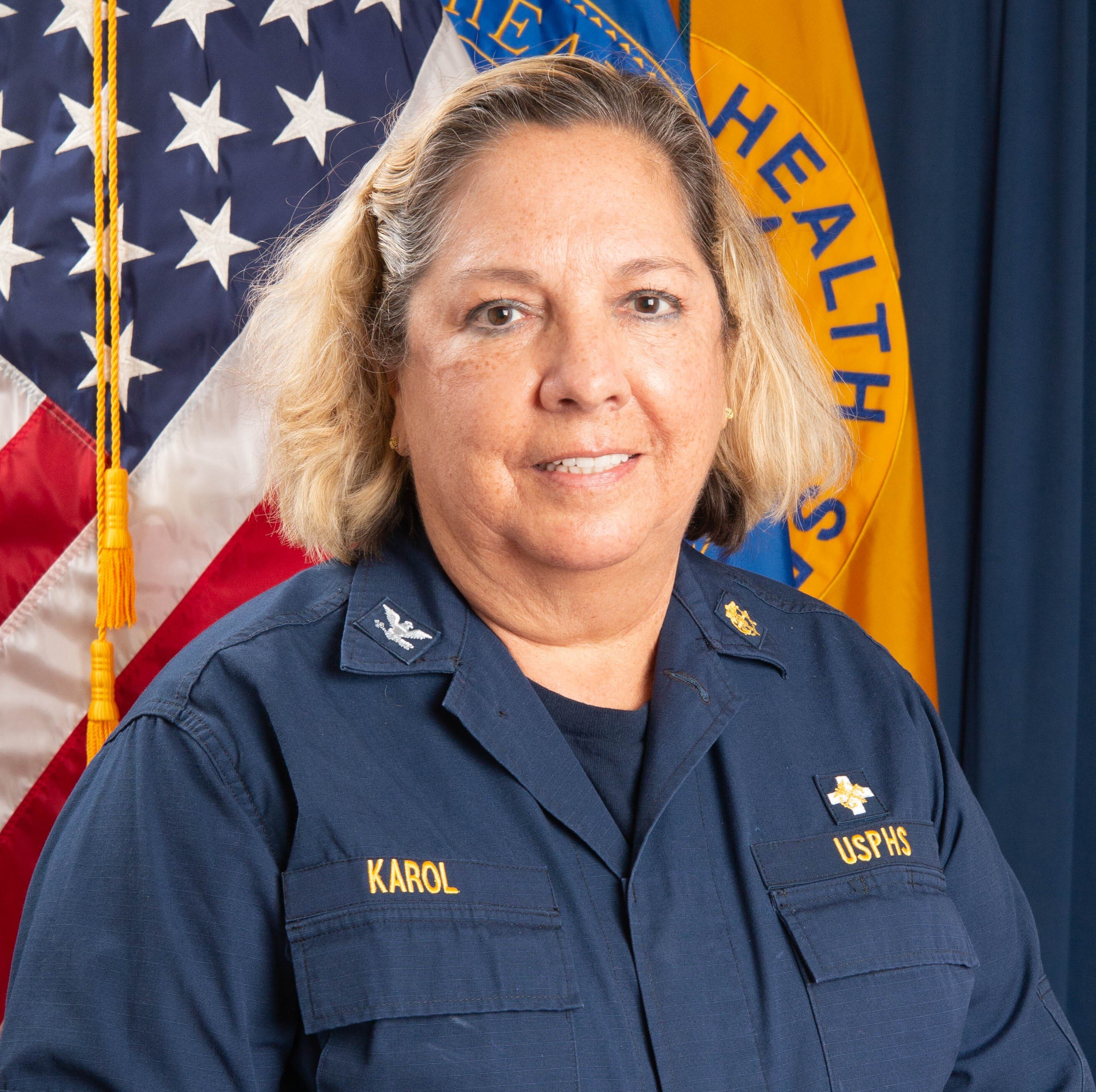
Dr. Susan Carol, MD
Captain
U.S. Public Health Service & Chief
Medical Officer
Division of Tribal Affairs
Centers for
Medicare & Medicaid Services
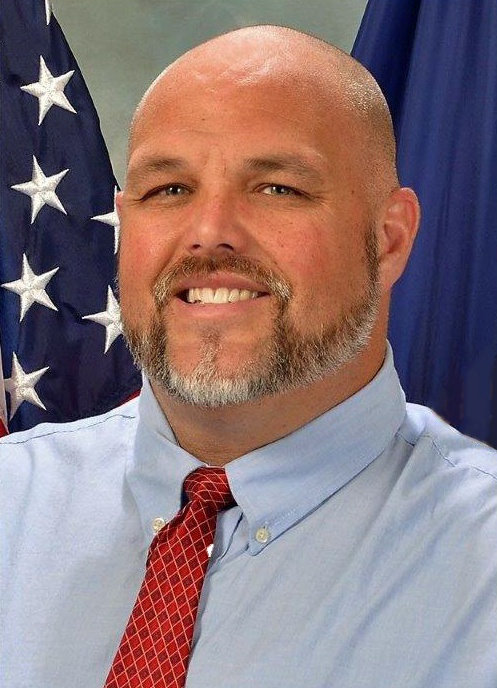
Rodney Waltersdorff
Deputy
Director
Emergency Preparedness & Response Operations
Resilience is the dynamic and demonstrable outcome of an individual, family, or community’s ability to cope with uncertainty, access needed resources, and adjust or bounce back in an often hazardous environment.
Rural, tribal, and geographically isolated communities face unique challenges, but also have unique strengths that allow them to be resilient and resourceful as they seek to recover from a variety of disasters.
This moderated discussion will highlight resiliency and resourcefulness across Entities (e.g., federal, state, local, tribal, and territorial) who have had to prepare for, mitigate, and overcome challenges related to natural disasters (e.g., earthquakes, fires, disease outbreaks) and human-made disasters (e.g., oil spills, lead poisoning, climate change), so that health and health care disparities for rural, tribal, and geographically isolated communities are not caused or worsened.
 May 1, 2023 03:10 pm
May 1, 2023 03:10 pm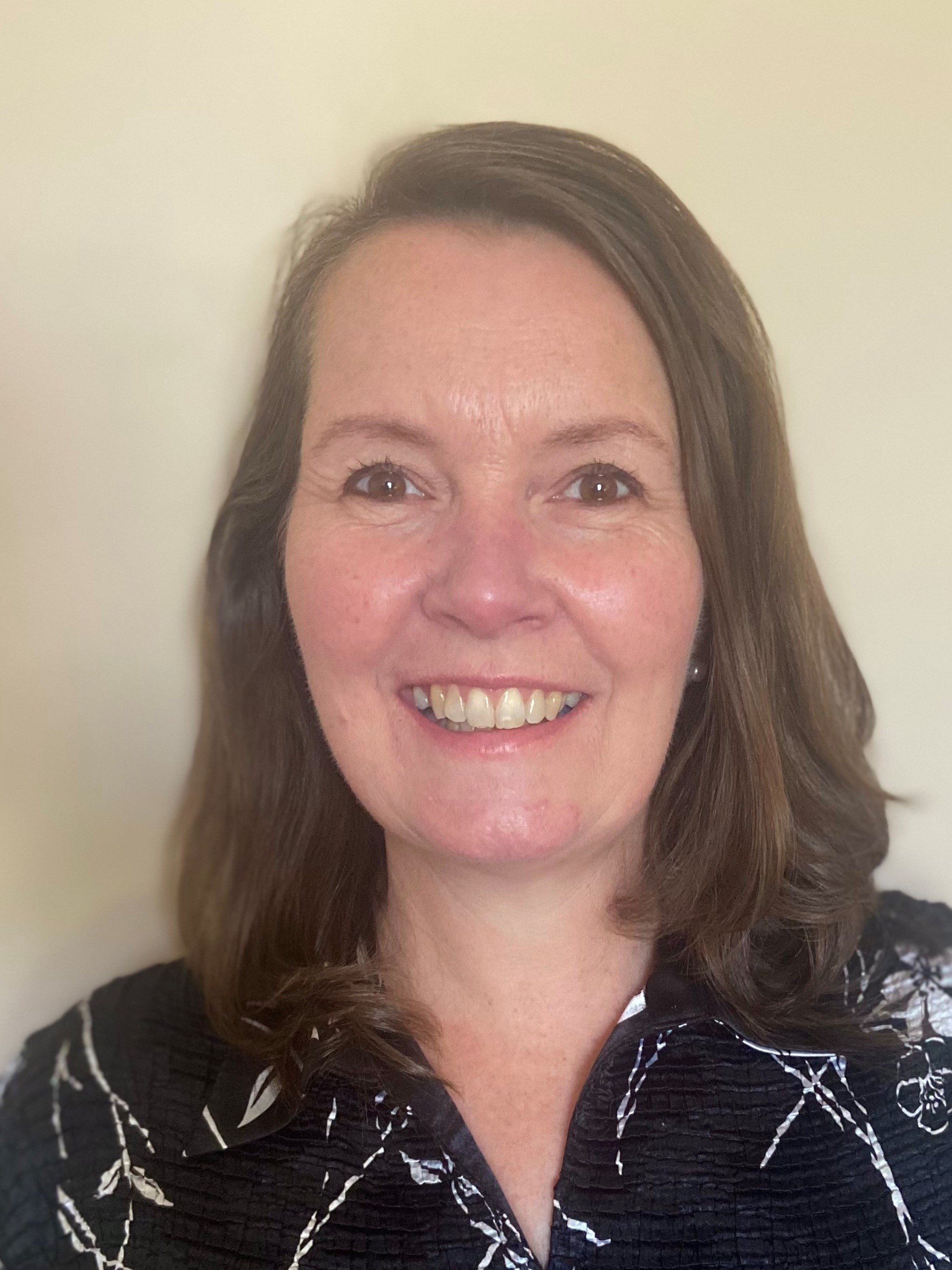
Charlotte Gjerloev, BSN, RN
Project Director
IPRO/Qlarant

Toni Kettner, BSN, MHN, NHA, CPHQ
Quality Improvement Advisor
Superior Health
Quality Alliance

Mei Wang, PhD
Division of
Community and Population
Health iQuality Improvement and Innovation
Group
Centers for Medicare & Medicaid Services
The QIN-QIOs’ Real-Time Medical Systems Quality Improvement Collaborative seeks to leverage nursing home data using innovative health information technology (HIT) solutions that respond to the Centers for Medicare & Medicaid Services directive that QINs incorporate advances in HIT to improve healthcare quality. This innovative work uses electronic medical record (EHR) agnostic software to pull live EHR data into real time alerts, reports, and dashboards, on a secure portal. The data is updated regularly throughout the day, and accessible to the care team (clinicians and pharmacists) and QINs.
 May 1, 2023 03:10 pm
May 1, 2023 03:10 pm
Bethany Gabbard, PhD
Senior
Data Analyst
TMF Health Quality Institute

Jill Manna, BA, PMP
Director of Analytic Resources
Quality
Insights
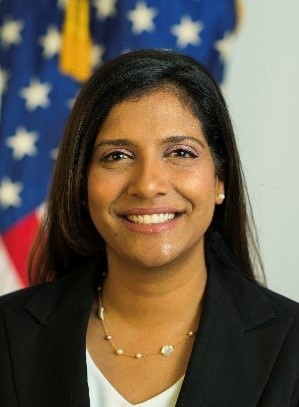
Anita Thomas, PharmD
Technical Advisor
Division of Community and
Population Health iQuality Improvement and Innovation Group
Centers
for Medicare & Medicaid Services

Knitasha V. Washington, DHA, FACHE
President & CEO
ATW Health Solutions
In this session we will review and discuss QIN-QIO efforts to advance health equity
using customized data dashboards and interactive tools to assess relationships
across equity measures and social determinates of health.
Track:
Attention to social risk factors has become increasingly important and
evidence supports that the proportion that social risk factors play is a pivotal
role in poor health outcomes. Adverse social conditions include food insecurity,
housing instability, and transportation challenges. Efforts to address these
problems in the past few years have witnessed increased collection of data on social
determinants of health (SDOH).
 May 1, 2023 03:10 pm
May 1, 2023 03:10 pm
Kenneth Howard
Director
Division of Engineering and Architecture
Information
Systems Group
Centers for Medicare & Medicaid Services
In this session, learn more about Center for Clinical Standards and Quality's (CCSQ)
vision of “bringing users to the data”. To avoid data duplication,
security, and transparency issues, CCSQ looks to enhance current architecture and
processes that provide users a “one-stop-shop” to data and analytics
tools. Bringing users to this solution and its data, instead of sending the data out
to users, will strengthen data accountability, data Quality
and data
transparency. Join this session to learn more about this important effort.
 May 1, 2023 03:10 pm
May 1, 2023 03:10 pm
Samantha Levy
HCD Researcher
Agile Six
Applications Inc.

Kiel McLaughlin
Senior UX
Researcher
Agile Six Appications Inc.

Sophia Sugumar
Health
Insurance Specialist
Centers for Medicare & Medicaid
Services
This session will look back at the last three years as the Quality Payment Program (QPP) worked towards the implementation of the Merit-based Incentive Payment System (MIPS) Value Pathways (MVPs). During this session we will explore how interactive research sessions with QPP site users, including clinicians and their staff, led to an improved understanding of users’ needs and experiences in the program. We will also cover how these insights ultimately laid the groundwork for the MVP Learning Experience, which aims to assist clinicians in their transition to MVPs. We will also discuss how interested parties may continue to engage with the QPP Human Centered Design (HCD) Team in the future.
 May 1, 2023 03:10 pm
May 1, 2023 03:10 pm
Adrienne Mims, MD, MPH, FAAFP, AGSF
Chief Medical Officer
Rainmakers Strategic
Solutions

Samuel "Le" Church, MD, MPH, CPC-I, FAAFP
Local Medical Director
Aledade, Inc.

Ali Khan, MD, MPP, FACP
Chief Medical Officer
Value-Based Care
Delivery
Oak Street Health
The power of targeted data analysis to guide understanding of health and disease disparity will be reviewed. The application of this knowledge to direct targeted high yield strategies and interventions across large provider networks will be explored with recommendations for best practices. Specific target areas include cardiovascular disease and event reduction through team-based hypertension control as well initiatives to prevent the progression of chronic kidney disease.
 May 1, 2023 04:00 pm
May 1, 2023 04:00 pm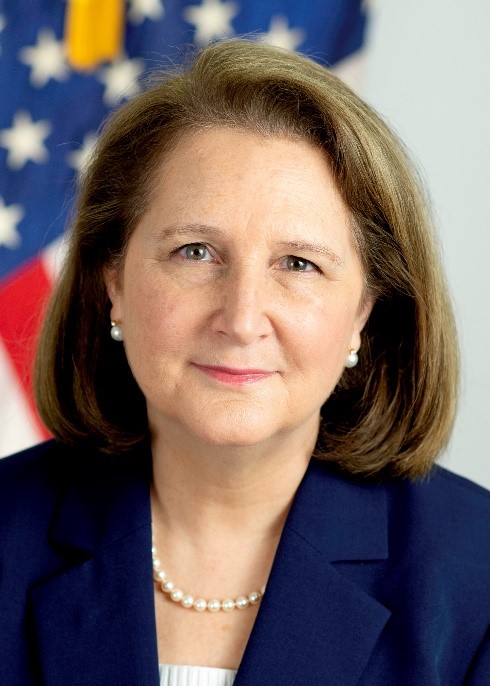
Dr. Michelle Schreiber, MD
Deputy Director
Center for Clinical Standards and
Quality
Centers for Medicare & Medicaid Services
 May 1, 2023 04:15 pm
May 1, 2023 04:15 pm
Dr. Rana Awdish, MS, MD, FACP, FCCP
Henry Ford Health
 May 2, 2023 11:00 am
May 2, 2023 11:00 am
Jean Moody-Williams, RN, MPP
Deputy Center Director
Center for Clinical
Standards and Quality
Centers for Medicare & Medicaid
Services
 May 2, 2023 11:05 am
May 2, 2023 11:05 am
Dr. Lee A Fleisher, MD (Moderator)
Chief Medical Officer and Director of the Center for
Clinical Standards and Quality
Centers for Medicare & Medicaid
Services

Elizabeth "Liz" Fowler, PhD, JD
Deputy Administrator and Director
Center for
Medicare and Medicaid Innovation
Centers for Medicare & Medicaid
Services
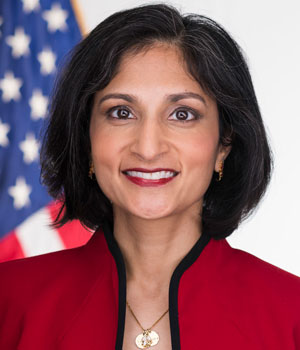
Dr. Meena Seshamani, MD, PhD
Deputy Administrator and Director
Center for Medicare
Centers for Medicare & Medicaid Services
As the nation’s largest health care payer, responsible for more than one in five dollars spent on health care within the United States, Medicare plays a key role in transitioning the health care system away from fee-for-service, which incentivizes quantity of care, and towards value-based care, which incentivizes high-quality care and smarter spending. This session will focus on CMS’ efforts to remain committed to advancing value-based care, by focusing on three strategic priorities of alignment, growth, and equity in a way that best meets the needs of people with Medicare, who deserve high-Quality equitable care.
 May 2, 2023 11:25 am
May 2, 2023 11:25 am
Dr. Dan Tsai
Deputy
Administrator and Director
Center for Medicaid and CHIP
Services
Centers for Medicare and Medicaid Services
Medicaid and the Children’s Health Insurance Program (CHIP) cover 90 million Americans, including over 41 million children. These programs are administered by the states under broad federal guidelines. In this session, you will hear from Daniel Tsai, Deputy Administrator and Director Center for Medicaid and CHIP Services about federal quality measurement and improvement initiatives, and how CMS is partnering with states to facilitate coverage and access, equity, and innovation and whole-person care, including behavioral Health for our beneficiaries.
 May 2, 2023 11:45 am
May 2, 2023 11:45 am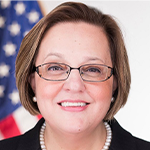
Natalia Chalmers DDS, MHSc, PhD
Chief Dental Officer
Office of the
Administrator
Centers for Medicare & Medicaid Services
The CMS Chief Dental Officer will discuss the vision for oral health programs across the Agency, including how dental-medical integration is essential for advancing health equity, improving clinical outcomes, and improving oral health for all beneficiaries.
 May 2, 2023 11:55 am
May 2, 2023 11:55 am
Dr. Donald Berwick, MD, MPP, FRCP, KBE
President Emeritus and Senior Fellow
Institute for Healthcare Improvement
 May 2, 2023 12:05 pm
May 2, 2023 12:05 pm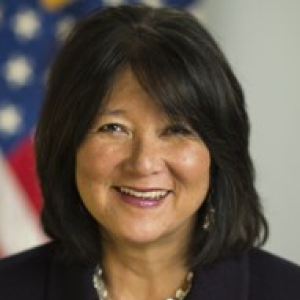
Dr. Shari Ling
Deputy Chief Medical Officer
Center for Clinical Standards and Quality
Centers for Medicare & Medicaid Service
 May 2, 2023 12:10 pm
May 2, 2023 12:10 pm
ADM Rachel L. Levine, MD
Assistant Secretary for Health
U.S. Department of Health & Human Services
 May 2, 2023 12:25 pm
May 2, 2023 12:25 pm
Dr. Chiao Wen Lan (Moderator)
Social Scientist
Health Services Advisory
Group

Dr. David E. Henner, DO
Division Chief of Nephrology
Medical
Director of Dialysis
Berkshire Medical Center , Pittsfield, MA
President, National Forum of ESRD Network
Sunil Patel, MD
Director
Kidney Pancreas
Program
University Medical Center Transplant Center, Las Vegas,
NV

Shrona Alpough, RN, BSN
Facility Administrator
DaVita Renal Center
of Port Arthur

David Tyrell, BS, RN
Clinical Director/Transplant
Administrator
University Medical Center Transplant Center, Las
Vegas, NV

Christa Abel, LCSW, MSW
Renal Social Worker
Berkshire Medical
Center, Pittsfield, MA
Patients living in disadvantaged neighborhoods are more likely to encounter barriers to care, including transportation challenges, food insecurity, and housing instability. Dialysis facilities and transplant centers play a critical role in reducing health disparities among underserved patients. The End Stage Renal Disease (ESRD) National Coordination Center analyzed ESRD Quality Reporting System (EQRS) data and the Area Deprivation Index to identify facilities serving patients living in the most disadvantaged neighborhoods. Dialysis facilities above the national average for transplant waitlists were interviewed to identify best practices. These facilities will share lessons learned, what worked for patients, barriers faced, and the solutions implemented to advance health equity. This includes equity-promoting strategies to reduce disparities, including screening and identifying health-related social needs, providing culturally tailored patient education, and connecting patients to community-based resources. Lessons learned from Technical Assistance Quality Improvement and Learning (TAQIL) and the ESRD Treatment Choice Learning Collaborative (ETCLC) have identified a key driver to transplantation is waitlist management. One successful transplant center, which has more than tripled the number of kidney transplants in recent years, will share its assertive approach to improving communication with dialysis facilities and patient education. It has focused on maintaining “transplant ready” status and overall improved health and well-being as a top priority for patients on the waitlist.
 May 2, 2023 12:25 pm
May 2, 2023 12:25 pm
LT John Watts, PharmD
U.S. Public Health Service & Analyst Office
of Burden
Reduction & Health Informatics
Centers for
Medicare & Medicaid Services
Like throwing a stone into a lake, we create ripples on the surface and displace the water below. What happens when that stone is health care policy, and those ripples and displacement are both burden reduction and unattended consequences? In this discussion, we review the Office of Burden Reduction and Health Informatics’ efforts on predicting and measuring those ripples and displacements.
In 2022 OBHRI developed an Impact Analysis Methodology, which scores every regulatory action and policy released by CMS for potential burden reduction and policy-related impacts. This innovative methodology creates baseline quantitative and qualitative assumptions of burden totality using regulatory impact analysis, stakeholder feedback, and media sensing technology.
The methodology uses data to compare current burden perceptions, evaluates burdens estimated in the regulations, and then augments the quantitative data with qualitative, experiential anecdotes. The qualitative data prompts efforts to then review targeted data sources to add quantitative data to either support or challenge the qualitative burden perceptions.
This discussion will provide details on the methodology developed to bring clarity to the burden totality perceived by stakeholders and beneficiaries, beyond dollars and hours.
 May 2, 2023 12:25 pm
May 2, 2023 12:25 pm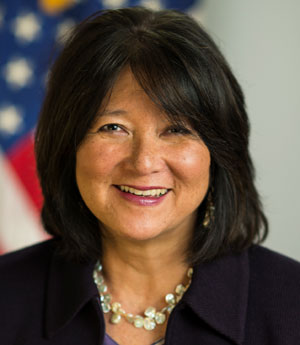
Dr. Shari Ling (Moderator)
Deputy Chief Medical Officer
Centers for
Medicare & Medicaid Services

Dr. Adrienne Mims, MD, MPH, FAAFP, AGSF
Chief Medical Officer
Rainmakers Strategic
Solutions

Joe Montminy
Dementia
Advocate

Dr. G. Michael Harper, MD, ADSF, FACP
President
American Geriatrics Society &
Professor UCSF School of Medicine & Physician San Francisco
Veterans Affairs Medical Center
In the United States, Alzheimer’s Disease and Alzheimer’s Disease Related Dementias (AD/ADRD) affects as many as 5 million people and roughly 13.2 million older Americans are projected to have AD/ADRD by 2050. Alzheimer's Disease and related Dementias (AD/ADRD) are debilitating conditions that impair memory thought processes, and functioning, primarily among older adults. AD/ADRD has physical, psychological, social, and economic impacts not only for the individual but also for their families, and society as a whole.
Care management can be effective for people living with dementia when care goals are known and used to guide nonpharmacologic and pharmacological treatment.
This session will address the importance of patient-clinician decision making as well as identify ways to improve patient-clinician decision making in dementia care planning.
 May 2, 2023 12:25 pm
May 2, 2023 12:25 pm
Stephanie Fry, BA
Senior
Study Director
Westat
&
Deputy Director
BFCC
NCORC

Scott Fortin, MBA
Senior
Director
Communications and Outreach
Kepro

Matthew Stofferahn, MD
Medical Director
Livanta

David Bercham, MSW
Senior Associate
Rainmakers Strategic
Solutions
&
Director
BFCC-Survey Center
 May 2, 2023 12:25 pm
May 2, 2023 12:25 pm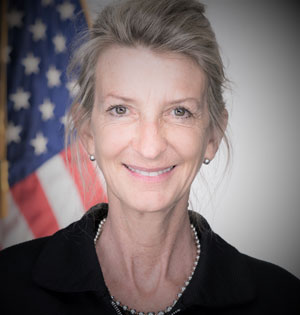
Stella "Stace" Mandl, BSW, BSN, RN, PHN
(Moderator)
Deputy Office
Director
Office of Burden Reduction and Health
Informatics
Centers for Medicare & Medicaid Services
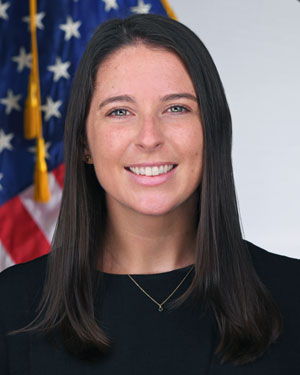
Morgan Taylor
Technical
Advisor
Customer-Focused Research
Group Office of Burden
Reduction and Health Informatics
Centers for Medicare &
Medicaid Services

Ted Long, MD, MHS
Senior
Vice President Ambulatory
Care and Population Health
New
York City Health + Hospitals & Executive Director Test &
Treat Corps
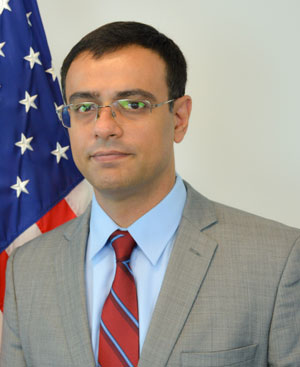
Neeraj Gandotra, MD
Chief Medical Officer
Substance Abuse and
Mental Health Services Administration

Sarah Lenz Lock, JD
Senior
Vice President
Policy & Brain Health AARP

Jeane Garcia-Davis, MSN/MPH, RN
Associate Director
Science & Policy
Office of the Surgeon General
Stakeholder engagement activities leveraging Human-Centered Design methods by the Office of Burden Reduction were conducted to understand the problem spaces in care delivery related to Behavioral Health and Chronic Pain. While separate engagements, the two projects revealed a common theme specific to the impact stigma has on perceptions and therefore access to care, treatment and recovery.
This panel discussion will include a case study on how Human-Centered Design methods were leveraged for CMS’ stakeholder engagements to holistically understand the barriers encountered by individuals accessing behavioral health services for the prevention, treatment, and recovery from substance use disorder (including effective pain treatment), and the barriers encountered by those seeking access to covered treatment for chronic pain. Discussions will delve into issues raised through the stakeholder engagement work; including the impacts abstinence models have on vulnerable populations and the biases endured by individuals coping with and treating chronic pain. Through the lens of providers and patients, the discussion will illuminate the pervasiveness of stigma; the expansive impacts it has for those who seek care, and those who provide care, as well as efforts through communities and education to mitigate the barriers that stigma creates.
 May 2, 2023 12:25 pm
May 2, 2023 12:25 pm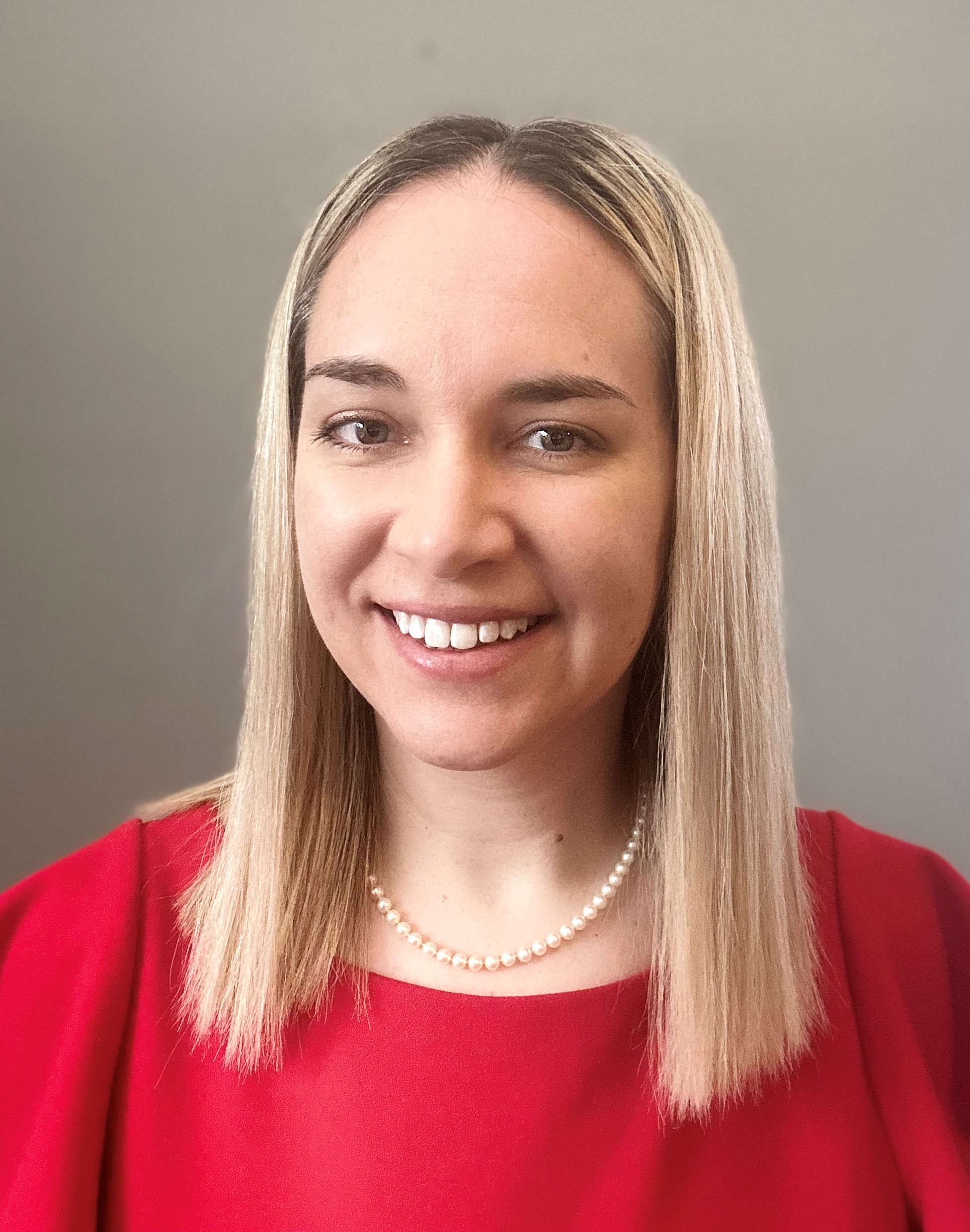
Dr. Carla Shoff, PhD (Moderator)
Senior Advisor to the Chief Dental
Officer
Centers for Medicare & Medicaid Services
Dr. Jill Boylston Herndon, PhD
Owner
Key Analytics and Consulting,
LLC
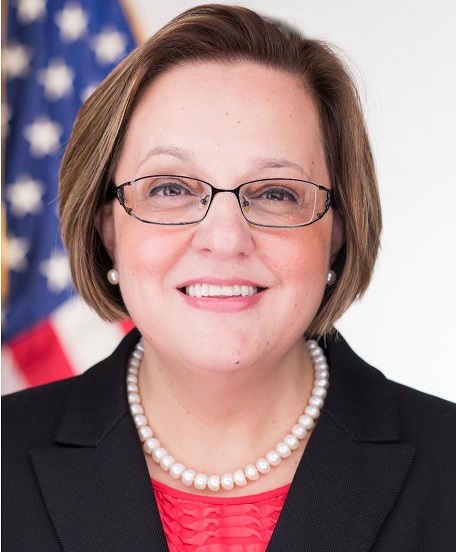
Natalia Chalmers DDS, MHSc, PhD
Chief Dental Officer
Office of the
Administrator
Centers for Medicare & Medicaid
Services
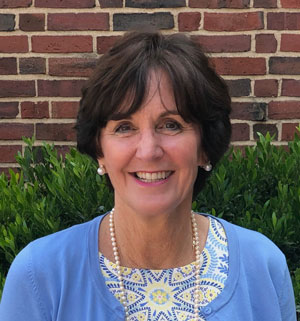
Mary Foley, MPH
Executive Director
Medicaid|Medicare|CHIP
Services
Dental Association
This session will contain three presentations focusing on advancing health equity through oral health quality improvement. The presentation will highlight the impact of the COVID-19 pandemic on the health disparities in the prevalence of dental conditions and access to dental services. The Oral Health Equity Self-Assessment Tool can decrease oral healthcare inequities and increase access and use of dental services. A dashboard has been created that can dynamically generates state and national oral healthcare quality measure reports.
 May 2, 2023 12:25 pm
May 2, 2023 12:25 pm
Anita Monteiro (Moderator)
Director iQuality Improvement and Innovation
Group
Centers for Medicare & Medicaid Services

Steve Burrows
Founding
Member
Patients for Patient Safety US

Carole Hemmelgran, MS
Founding Member
Patients for
Patient Safety US

Armando Nahum
Founding
Member
Patients for Patient Safety US

Soojin Jun, BCGP, CPPS, CPHQ
Founding Member
Patients for
Patient Safety US
In this session Patients for Patient Safety US will share practical solutions for safer care that have their genesis in the stories of patients and their family members. The solutions we offer have been shaped by each speaker’s sense of having a calling to be an activist for patient safety, to partner effectively so that change happens, to re-invigorate patient safety and health equity as intrinsically connected priorities for all patients, and to restore trust. The session will explore preventable harm beyond complications and healthcare acquired conditions to include diagnostic failure or delay, failure to rescue, bias, moral harm, emotional harm, fiscal harm, and the intergenerational impact of unsafe care on parents, siblings and children. Revival in its essence is about renewal, recommitment and rebirth. The solutions we seek are achievable if there is the will to recommit to transparency, being responsible, and valuing the lived experience of patients and families as we co-create solutions together. With this session, Patients for Patient Safety US welcomes patients, providers, policymakers and change agents of all stripes who seek a safe and resilient healthcare system grounded in dedication to first, and fundamentally, do no harm. Join us at the Patient Safety Revival!
 May 2, 2023 12:25 pm
May 2, 2023 12:25 pm
Stephen Esquivel-Pickett, PhD
Economist State Demonstrations Group
Center
for Medicaid and CHIP Services
Centers for Medicare &
Medicare Services

Joshua Bougie
Health Insurance Specialist, Division of State Coverage Programs
Centers for Medicare & Medicaid Services

Amy Pulda
Homelessness
Services
Manager Wisconsin
Department of Health
Services

Gary Sing
Mass Health
Senior Director of Strategic Initiatives
Office of Payment and
Care Delivery Innovation
State Medicaid agencies have significant flexibility to design programs to comprehensively address the health of their beneficiaries, including addressing unmet health-related social needs. This session will examine Health Services Initiatives in the Children’s Health Insurance Program and innovative new Medicaid demonstration projects that address food insecurity and housing instability. The Center for Medicaid and CHIP Services (CMCS) will present measurement and evaluation approaches and challenges. Representatives from the states of Massachusetts and Wisconsin will reflect on operational challenges, and how the efforts in these areas can serve as best practices for the future and result in improved delivery of equitable health care.
 May 2, 2023 12:25 pm
May 2, 2023 12:25 pm
LeTonya Smith, CRNP
Health Insurance Specialist
Division of
Community and Population
Health iQuality Improvement and
Innovation Group
Centers for Medicare and Medicaid
Services

Tammy Geltmaker, RN, BSN, MHA, CPHQ
Progam Director
QSource

Don Gettinger, BS
Quality Improvement Advisor
QSource

Tara Hatfield, MHA, BSN, CPHQ
Education Outreach
Coordinator
QSource
This session will share CMS QIN-QIO lessons learned
in partnership development and CLAS education, especially with populations at
risk for health disparities, and opportunities to spread best practices.
Track: In June 2022, a QIN-QIO looked at ways to provide CLAS
Standards support. Conversations with Partnerships for Community Health (PCH)
identified the need for this assistance, especially for those pursuing NCQA
accreditation. A QIN-QIO provided CLAS presentations to all 12 PCHs and learning
sessions for the Indiana Rural Health Association. Individual meetings have been
conducted with six organizations to explain CLAS and offer technical assistance.
CLAS-related materials have been developed and disseminated. One common gap
identified is access to translated resources from trusted sources. To address
this need, a QIN-QIO is building new partnerships with community health workers
and Su Casa, a local community hub for the Latinx population, and is leveraging
existing opportunities with the Minority Health Coalition. Through Su Casa, A
QIN-QIO was able to get three of our most-requested resources translated to
Spanish and disseminated them at a community health fair in one of the
Partnerships for Community Health (PCH) communities.
 May 2, 2023 12:25 pm
May 2, 2023 12:25 pm
Floyd Eisenberg, MD, MPH, FACP
Senior Standards Advisor ICF
Standard updates significantly improve electronic
clinical quality measures (eCQMs) and digital quality measures (dQMs) ability to
aggregate outcomes about patient-centered care and patient engagement, areas
challenged by insufficient and disparate capture and nomenclature for essential
data elements. The Office of the National Coordinator for Health Information
Technology (ONC) standardized definitions and data capture by publishing United
States Core Data for Interoperability (USCDI) with social determinants of health
(SDOH) criteria, functional and cognitive status, and physical activity. HL7 and
ONC collaborate to support data capture and aggregation with US Core observation
profiles to allow use of any screening/risk tool. Results enabled with these
structured formats using standard code systems include food insecurity,
functional status, cognitive status, and social risks. Quality Improvement Core
(QI-Core®) builds on US Core, providing profiles to author eCQMs and dQMs
quality measures consistent with how health systems share data for routine
clinical care. Defining frailty (i.e., functional status and physical activity)
is a current challenge seen in expressing eCQMs.
Track: Future
work with a nascent Health Level Seven International (HL7) Fast Health
Interoperability Resources (FHIR) Accelerator for Devices promises to capture
data from ambulatory devices for trending patients over time (e.g., glucometer)
and enable aggregate analysis of populations with respect to changes in trends
over time. This presentation will review standards updates used in eCQMs and
dQMs relevant to clinical outcomes and risk adjustment to improve data quality.
 May 2, 2023 12:25 pm
May 2, 2023 12:25 pm
Tabia Henry Akintobi, PhD, MPH
Professor and Chair of Community Health and Preventive Medicine &
Associate Dean of Community Engagement & Principal Investigator &
Director of the Prevention Research Center & Director Evaluation and Institutional Assessment,
Morehouse School of Medicine

Shirley E. "Bella" Borghi
Executive Director and Vice Chairman Hispanic
Health Coalition of Georgia

Saadia Khizer, M
Director Vaccine Trials Unit
Morehouse School of
Medicine
The COVID-19 pandemic has presented an unanticipated
watershed movement where data is being leveraged to reprioritize and sustain
community-engaged research to advance health equity in Georgia.
Track: The Garnering Effective Outreach and Research in
Georgia for Impact Alliance (GEORGIA) - Community Engagement Alliance (CEAL)
Against COVID-19 Disparities Project (hereafter called GEORGIA CEAL) was funded
as part of a 21-state organization network to conduct urgent community-engaged
research and outreach focused on COVID-19 awareness and education to address
misinformation and mistrust and promote and facilitate inclusion of diverse
racial and ethnic populations in clinical trials along with vaccination uptake.
The GEORGIA CEAL Community Coalition Board, adapted
from the Morehouse Model, leveraged networks supporting mixed method data
collection strategies that included: surveys administered at two time-points in
34 counties (characterized by low vaccination and testing rates, and the Social
Vulnerability Index); and interviews/focus groups.
Blacks/AA were 0.48 less likely to get vaccinated (p=0.003), and those
with insurance and those who trusted their doctors/healthcare providers were
more likely to get vaccinated (OR: 2.75, p=.001 and OR: 2.81, p=.0072,
respectively). Qualitative findings highlighted historical and sociocultural
factors driving vaccination mistrust and decision-making and informed a social
media dashboard with real-time monitoring and analytics to identify/share
credible communication resources.
Results reflect not
only the acquisition of community wisdom towards advancing effective
communication among marginalized communities in Georgia but the application of
findings to communications and education approaches resulting in the vaccination
of over 65,000 Georgians and an increased proportion of Black and Latinx
participants in vaccine trials, amidst justified hesitancy during the pandemic.
 May 2, 2023 12:25 pm
May 2, 2023 12:25 pm
Purva Rawal, PhD (Moderator)
Chief Strategy Officer
Centers for Medicare
and Medicaid Services

Liz Fowler, JD, PhD
Director
Centers for Medicare and Medicaid
Innovation
Noemi Rudolph, MPH
Acting Director
Research and Rapid Cycle
Evaluation Group
Centers for Medicare and Medicaid Innovation
Kate Davidson, LCSW
Director Learning and Diffusion Group
Centers for
Medicare and Medicaid Innovation

Julita Mir, MD
Chief
Medical Officer
Community Care Cooperative
This session will 1) provide an overview of the CMS Innovation Center’s impact on the value-based care landscape, 2) share examples of how Innovation Centers models have impacted key dimensions of health system transformation through retrospective reviews of evaluations and learning system work, as well as panelist experiences, and 3) discuss how the CMS Innovation Center will assess the impacts of its models on health system transformation moving forward.
The CMS Innovation Center was created in 2010 as a result of the Affordable Care Act (ACA) of 2010. It has since tested over 50 innovation models with the goal of improving quality and outcomes for beneficiaries while reducing costs.
In 2021, the Innovation Center underwent a strategic refresh, which resulted in a
renewed vision to innovate equitable outcomes through high-Quality
person
centered care.
 May 2, 2023 02:10 pm
May 2, 2023 02:10 pm
Dr. Sean Michael (Moderator)
Regional Chief Medical Officer,
Centers for
Medicare & Medicaid Services
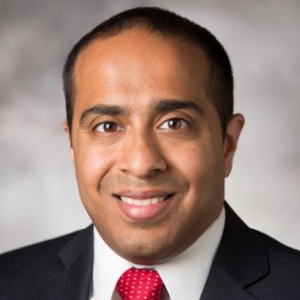
Arjun Venkatesh, MD, MBA, MHS
Chair, Department of Emergency Medicine, Yale
School of Medicine

Eric Wei, MD, MBA
Senior
Vice President and Chief Quality Officer
New York City Health +
Hospitals

Martin Reznek, MD, MBA
Professor and Execute Vice Chair for Clinical
Operations and Education
Department of Emergency Medicine,
UMass Chan Medical School/Umass Memorial Health
Although respiratory illness isn’t the cause of overcrowded emergency departments (EDs), the COVID-19 pandemic highlighted a reality present for decades: A resilient system, including one that can cope with surges in demand, requires deliberate alignment of incentives. One predictable consequence of healthcare economic incentives is the widespread practice of “boarding” people in EDs.
Boarding has a nexus to every element of the CMS National Quality Strategy and is associated with a multitude of harms including increased mortality, medical errors, readmissions, hospital acquired infections, guideline non-adherence, and physical violence. The consequences are well-described, but the practice continues because the economic and regulatory milieu continue to incentivize it. This panel of experts—representing perspectives from urban and rural hospitals, emergency care research, and quality improvement science—will examine why and begin to reimagine a more resilient and equitable design. This moderated roundtable will briefly survey the substantial body of topical literature, more closely examine the economic drivers, and discuss policy levers such as quality measurement, certification standards, payment dynamics, and other systematic approaches. Patients are put at risk not out of malice, but as a predictable consequence of how a complex system responds to incentives. By identifying and examining those incentives, we can improve outcomes, build resilience, and enhance safety.
 May 2, 2023 02:10 pm
May 2, 2023 02:10 pm
Dora Hughes, M.D., M.P.H. (co-Moderator)
Chief Medical Officer
Center for Medicare &
Medicaid Innovation
Centers for Medicare & Medicaid Services

Dr. Shari Ling (co-Moderator)
Deputy Chief Medical Officer
Center for Clinical Standards and Quality
Centers for Medicare & Medicaid Services

Anand Parekh, MD, MPH
Chief
Medical Advisor
Bipartisan Policy Center

Kedar Mate, MD
President and
Chief Executive Officer
Institute for Healthcare Improvement
CMS’ Behavioral Health Strategy outlines goals to support the whole emotional and mental well-being of a person, and promote person-centered behavioral health care, and aligns with the HHS Roadmap for Behavioral Health Integration. This plenary provides insights into the transformational opportunities to achieve better health outcomes through the delivery of integrated physical and mental health care services and supports. Speakers will discuss multi-level policy opportunities to enable integrated physical and mental health care delivery, and describe a systems-level framework for a learning health system for continuous improvement of health outcomes for people with mental and physical health needs
 May 2, 2023 02:10 pm
May 2, 2023 02:10 pm
Anita Monteiro (Moderator)
Director Quality Improvement and Innovation
Group
Centers for Medicare & Medicaid Services
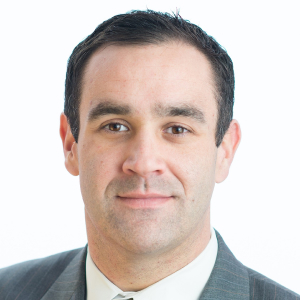
Michael Connors
Division Director - Division of Quality Contracts
Office of Acquisition and Grants Management (OAGM)
Centers for Medicare & Medicaid Services
CMS is providing the key elements of programmatic vision and acquisition related to the planned QIO 13th Scope of Work. Learn more about how CMS intends to position the QIO Program to provide quality improvement assistance within a changed health system.
 May 2, 2023 03:00 pm
May 2, 2023 03:00 pm
Scott Lawrence, DC (Moderator)
Deputy Director
Division of Practitioner
Services Center for Medicare
Centers for Medicare &
Medicaid Services

Linda Porter, PhD
Director
Office of Pain Policy and
Planning
National Institutes of Health

Cindy Steinberg
Director
of Policy and Advocacy
U.S. Pain Foundation

Jan Losby, PhD
Branch
Chief
Division of Overdose Prevention
Centers for Disease
Control and Prevention
The HHS 2019 Pain Management Best Practices Inter-Agency Task Force Report outlined multiple approaches to pain management that should be leveraged based on each person’s unique situation to achieve successful pain care.
It is essential to apply a comprehensive, person-centered approach to the diagnosis and treatment of pain that allows for multiple therapeutic modalities alongside thoughtful and individualized care coordination. The uptake of this approach is an increasingly urgent concern; nearly 80 percent of Medicare beneficiaries report experiencing chronic pain that interferes with function and quality of life.
Physician shortages also have serious implications for people living with pain across geography, underserved populations, and care settings. Our goal is to increase access to high quality pain care in the nation’s health care system. This session will outline collaboration across several HHS operating divisions to issue updated prescribing guidance, create new payment pathways for treatment, and make it easier for clinicians to find screening tools.
 May 2, 2023 03:00 pm
May 2, 2023 03:00 pm
Samantha Richardson (Moderator)
Director
Governance and Impact Analysis
Group
Centers for Medicare & Medicaid Services

LCDR Réna McClain, PharmD
Senior Health Insurance Specialist
Office
of Burden Reduction and Health Informatics
Centers for Medicare
& Medicaid Services
During the fall of 2022, OBRHI developed a set of survey questions to obtain data related to burden and provider experiences, including variations in care delivery experiences of rural vs. non-rural providers, and providers of historically underserved populations , including challenges pertaining to the use of telehealth as a care delivery service and patient risks and needs related to social determinants of health. Survey topics included: 1) screening for and addressing patients’ social needs and risks; 2) patient challenges using video-enabled telehealth; 3) factors impacting time spent with patients; and 4) scope of practice flexibilities established during the COVID-19 public health emergency. The survey was distributed nationally to providers who practice in office-based settings and serve Medicare/Medicaid beneficiaries.
This discussion will convey insights from the survey results, including the experiences and perceptions of providers who deliver care to underserved patient communities including individuals that are members of racial and ethnic communities and providers practicing in ZIP Codes with higher poverty levels.
 May 2, 2023 03:00 pm
May 2, 2023 03:00 pm
Natalia Chalmers DDS, MHSc, PhD (Moderator)
Chief Dental Officer
Office of the
Administrator
Centers for Medicare & Medicaid
Services

Dr. Steffany Chamut, DDS, MPH, FICD
Instructor in Oral Health Policy and
Epidemiology
Harvard School of Dental Medicine

Colleen Lampron, MPH
Collaborative Director
National Network for
Oral Health Access

Monica McKee, MPH, RDH
Vice President
Ancillary Clinical
Services
Oklahoma City Indian Clinic
This session will showcase three examples of quality improvement in oral health
integration. Research using the Minimum Data Set 3.0 Resident Assessment
Instrument can be used to identify oral health problems and malnutrition among
Medicare beneficiaries residing in Nursing Homes.
Track:
Health centers are improving outcomes for patients with diabetes by using
a shared measurement system for their collaborative. An Integrated Dental
Hygiene Program for expecting mothers led to early intervention, medical-dental
integration, and continuity of care. Results from their 4-month study will be
shared.
 May 2, 2023 03:00 pm
May 2, 2023 03:00 pm
Cheri C. Wilson, MA, MHS, CPHQ
Program Director
Diversity Inclusion, and
Health Equity
Johns Hopkins Health System

Dr. Alexandria Beranger
National Director
Quality & Patient
Experience
ChenMed
The presentation will describe how two healthcare organizations used CLAS Standards to provide high quality care.
The Johns Hopkins Medicine Office of Diversity, Inclusion, and Health Equity; Language Services; and academic–community partnerships operationalized to develop a health equity focus based upon the three domains of the National Culturally and Linguistically Appropriate Services (CLAS) Standards in Health and Health Care (National CLAS Standards) to support the organization’s COVID-19 response and to provide a framework of health equity initiatives for other academic medical centers.
ChenMed, a value-based care health care organization, operates more than 120 centers in 15 states, where primary care physicians are transforming care of the neediest populations. Including reducing in-patient hospitalizations by 30 to 50 percent, and shrinking ER visits by as much as 75 percent.
This presentation will describe how strategic physician recruitment, career development and robust operational support solutions, reduce physician burnout, and help medical practices on the pathway to full-risk.
 May 2, 2023 03:00 pm
May 2, 2023 03:00 pm
Marilyn Reirson, MS
Program Director
Partnership to Advance
Tribal Health

CAPT Cynthia Gunderson, PharmD
Chair National Committee on Heroin
Opioids,
and Pain Efforts (HOPE)
Indian Health Service

Jane Brock, MD, MPH
Clinical Director
Partnership to Advance
Tribal Health
Impacting opioid overdoses in Indian Country requires collaboration on harm reduction education, data, resources and interventions. Under the CMS American Indian Alaska Native Healthcare Quality Improvement (AIHQI) Task Order, the Partnership to Advance Tribal Health (PATH) aligns Indian Health Service (IHS) strategic priorities and CMS contract goals to drive improvement in patient care.
Collaborating with the IHS National Committee on Heroin Opioids and Pain Efforts (HOPE Committee) has proven invaluable in guiding PATH’s opioid work. HOPE is comprised of dedicated IHS health professionals, like physicians, pharmacists, rehabilitation professionals, behavioral health providers, nurses, and engineers serving tribal communities across the nation. They work to promote appropriate and effective pain management, reduce overdose deaths from heroin and prescription opioid misuse and improve access to culturally appropriate treatment. With a shared goal of decreasing the harm caused by opioids on tribal communities, PATH and HOPE developed a workplan for multi-disciplinary and innovative approaches on opioid stewardship, screening strategies and harm reduction efforts.
The teams co-created materials for an IHS opioid dashboard, training videos, an opioid stewardship template, as well as offered opioid dashboard office hours and educational events on substance use screening. HOPE provides insights and guidance on PATH materials and contract work, while PATH offers creative, administrative, and logistical support for HOPE. By aligning with and amplifying the work of an existing IHS team, PATH efforts for harm reduction in Indian Country are more meaningful, more impactful and more sustainable.
 May 2, 2023 03:00 pm
May 2, 2023 03:00 pm
Dr. Michelle Schreiber, MD (Moderator)
Deputy Director
Center for Clinical
Standards and Quality
Centers for Medicare & Medicaid
Services

Carole Hemmelgran, MS
Founding Member
Patients for
Patient
Safety US

Martin Hatlie, JD
Founding Member
Patients for
Patient
Safety US
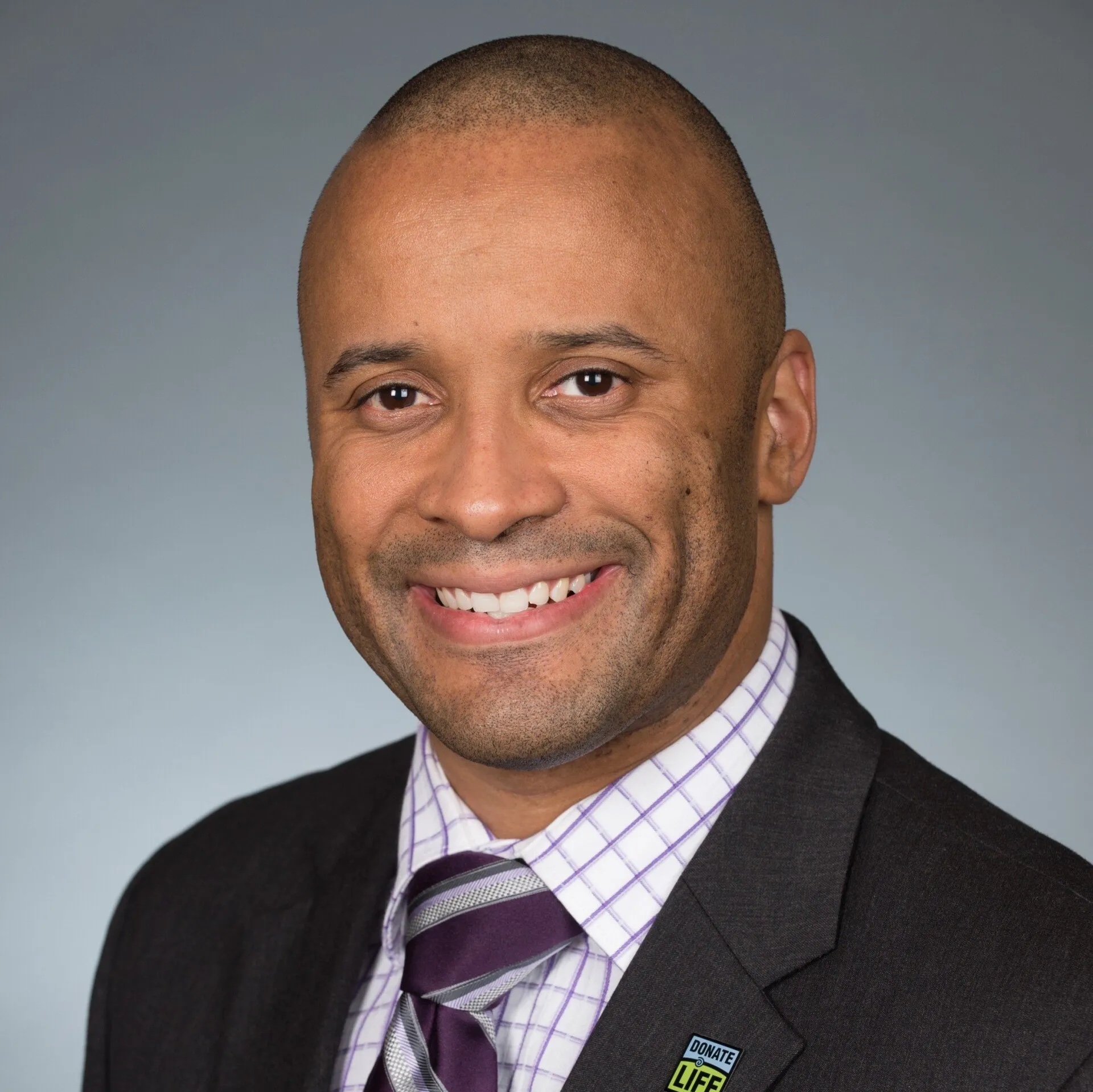
COL Steven Coffee, MA
Founding Member
Patients for
Patient
Safety US
Patients and family members who have experienced unsafe care are now activated in calling for a reprioritization of Patient Safety as a top policy concern. Failures in responsible reporting, accountability, transparency, and patient/family engagement still occur more than 20 years after the To Err is Human call to action. In 2021 a National Academy of Sciences report observed that progress in patient safety was at a “standstill” in the United States and that continuing in the current trajectory would not produce better results.
Covid-19 underscored the gaps in patient safety, health equity and health system resilience overall. Concerned that patient safety has drifted off the national agenda for many organizations and government agencies, a group of patient advocates came together to form Patients for Patient Safety US (PFPS US), a branch of the World Health Organization network of patients, family members, healthcare professionals and policymakers passionate about achieving safe healthcare across the globe. As an advocacy group, we have engaged interested government agencies, healthcare systems and community partners to collaborate in raising patient safety and health equity to the national, state and local level again as top health policy priorities.
In this session, founders of PFPS US will present an agenda of actionable interventions to drive transparency, accountability and oversight, and patient and family engagement as patient safety and health equity improvement change engines.
 May 2, 2023 03:00 pm
May 2, 2023 03:00 pm
Stephanie Hutchinson, MBA (Moderator)
Executive Director
ESRD Network
16,
Comagine Health

Jessica Joseph, MBA
Senior Vice President for Scientific
Operations,
National Kidney Foundation

Matthew Rivara, MD
Associate Professor of Medicine,
University
of Washington
The National Kidney Foundation (NKF) initiated a successful Chronic Kidney
Disease (CKD) ECHO in 2019 helping health systems identify at-risk populations
for kidney disease and utilizing the ECHO program to deliver pre-emptive
prevention education.
Track: The National Kidney Foundation
and Comagine Health forged a partnership in 2021 to provide this program within
the Network framework as a national outgrowth from the NKF work on CKD. Piloted
with Network 16 in 2021-22, it has now expanded to include 4 Networks (NW 2, 5,
11, and 16) with the curriculum which will encompass 2022-2023. The goal of this
session is to introduce the initial Network Home Dialysis ECHO to the kidney
community.
 May 2, 2023 03:00 pm
May 2, 2023 03:00 pm
Deirdra Stockmann, PhD, MUP (Moderator)
Technical Director
Division of Quality
& Health Outcomes
Center for Medicaid and CHIP
Services
Centers for Medicare & Medicaid Services

Krista Lynch
Analytics,
Research, and Measurement Administrator

Larry Mull
Associate
Director
Business Intelligence Solutions
Division of
Health Benefits
North Carolina Department of Health & Human
Services

Kimberly Proctor, PhD
Chief Data Officer
Data and Systems
Group
Center for Medicaid and CHIP Services
Centers for
Medicare & Medicaid Services
This session will explore data visualization tools used by the Center for Medicaid and CHIP Services and state Medicaid and CHIP agencies to understand beneficiary health and drive quality improvement, including data dashboards, run charts, and visual tools for communicating quality information to interested parties. The session will focus particularly on how data visualization is being used to identify health disparities and promote health equity.
 May 2, 2023 03:00 pm
May 2, 2023 03:00 pm
Joel Andress, PhD
Senior
Digital Quality Measurement Program Lead
Centers for Medicare
& Medicaid Services

Bridget Calvert
Senior
Digital Quality Measurement Implementation Lead
Centers for
Medicare & Medicaid Services
The CMS and ONC 2020 interoperability rules created formal processes for advancing standards and implementation by encouraging innovation with data exchange and Fast Healthcare Interoperability Resources (FHIR®) application programming interface (API) technology. Pending progress in interoperability creates an opportunity to move to leverage standardized data, FHIR® solutions, and modernize quality measurement processes.
Along these lines, in 2020, CMS announced a goal of transitioning to full digital quality measurement. This panel will discuss key CMS activities to achieve digital quality measurement, focused on leveraging data standards, and exploring quality measure redesign to leverage advances in technology.
 May 2, 2023 03:00 pm
May 2, 2023 03:00 pm
Cheryl Franklin, MD, MPH
Associate Professor
Department of
Obstetrics and Gynecology
Morehouse School of Medicine &
Executive and Founding Director Center for Maternal Health Equity
Morehouse School of Medicine

Natalie Hernandez, PhD, MPH
Associate Professor and Executive
Director
Morehouse School of Medicine

Kaitlyn Hernandez-Spalding, MPH
Research Assistant II
Morehouse School of
Medicine
Black women are about 3 to 4 times as likely to die from a pregnancy-related cause compared to white women and more than 80% of these deaths are preventable. This talk will highlight the role of a historically Black medical school in its fight against inequities in severe maternal morbidity and mortality.
The presentation will highlight the work of the Center for Maternal Health Equity at Morehouse School of Medicine (MSM) in pursuing equity through interdisciplinary translational research, inter-professional training, outreach, education, community engagement, policy and advocacy, and respectful health care. The presentation will feature two specific projects from MSM investigators that are addressing maternal health inequities focused on “maternal near misses” and the two pandemics of structural racism and COVID-19 on Black maternal health.
 May 2, 2023 03:00 pm
May 2, 2023 03:00 pm
Anita Thomas, PharmD
Technical Advisor
Division of Community and
Population Health iQuality Improvement and Innovation
Group
Centers for Medicare & Medicaid Services

Mary Ford, RN, MPH
Division of Community and Population Health
Quality Improvement and Innovation Group
Centers of Medicare
& Medicaid Services

Sheila McLean, MBA, LNHA, CPHQ
Senior Consulting Manager
Vice President
Health Quality Innovators

Allison Spangler, BSN, RN, RAC-CT, QCP
Consulting Manager
Health Quality
Innovators
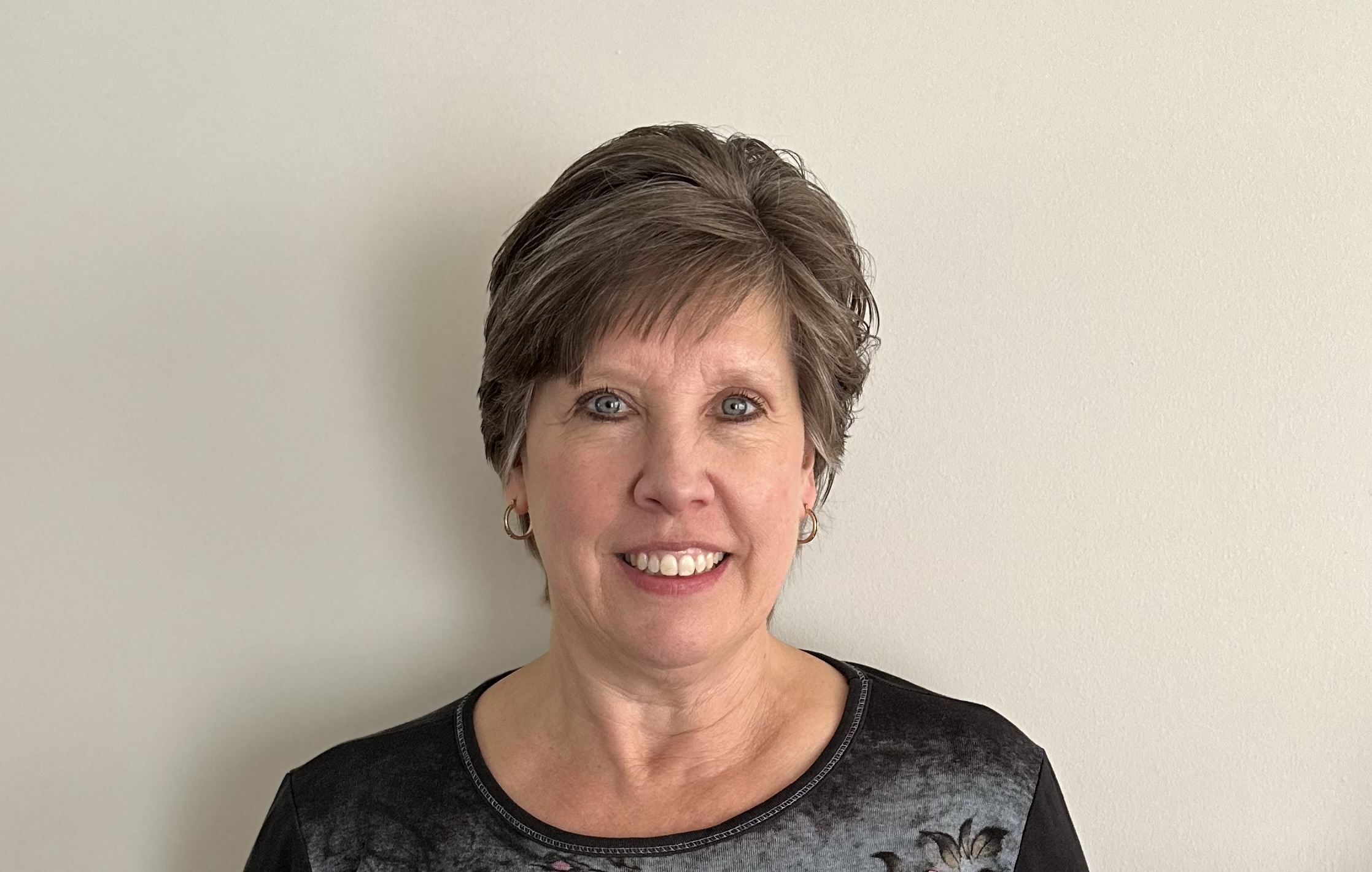
Teresa Lubowski, Pharm. D., B.S., CPHQ,
Director
Drug Safety
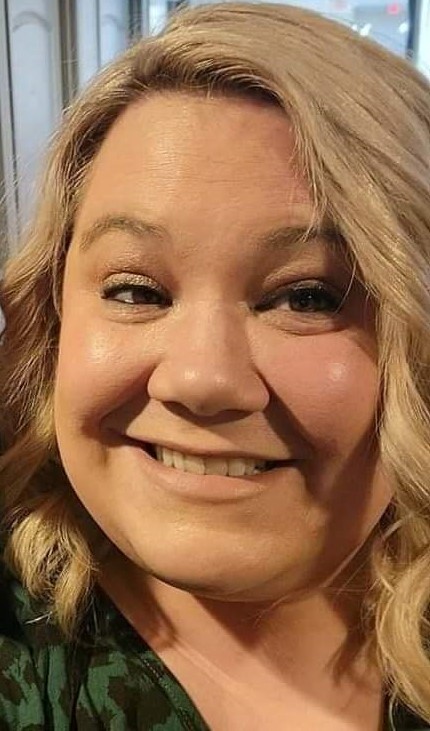
Valerie Reger, LPN
Quality Assurance Technician
New Jersey
Department of Health
In this session, two CMS QIN-QIOs will present on nursing home patient safety quality improvement interventions using data and innovative approaches to identify and track outcomes.Nursing Home Hand Hygiene Electronic Data collection /visualization/analysisA QIN-QIO collaborated with the New Jersey Department of Health (NJDOH) to create and disseminate an automated hand hygiene competency and observation project for nursing homes (NH) in New Jersey.
56 NHs were included in this intervention. The goal was to use an automated process to assess hand hygiene adherence, utilizing real-time data for education and reporting. NH teams used REDCap to collect data electronically on cell phones, tablets, or iPads to decrease paper data collection. Utilizing Tableau for data visualization provided a "real-time" dashboard and access to customized reports. NH teams have access to their data and can filter by competency, observation, type of staff, unit, shift, quarter, and bed size and compare data to other participating NHs using a facility identifier for confidentiality.
Hand hygiene observations were correctly completed for up to 86 % of observed instances and incorrectly completed for up to 5% of observed instances. Reducing Sepsis-Related Hospital Readmissions and Emergency Department Visits through a Fast-Track Educational Sprint Series:In late spring 2022, QIN-QIO nursing home quality improvement advisors identified that hospital readmissions and emergency department (ED) visits were high across the entire service area. Through further analysis of Part-A claims, the QIN-QIO team identified sepsis as the number one diagnosis for readmissions and ED visits across the four state service area.
In response, the team launched a “Sepsis Sprint Series” learning and action event in June 2022. This weekly series offered practical recognition tools and best practices or “how to’s” enabling nursing home participants to immediately share and implement what they learned to reduce readmissions and ED visits due to sepsis.
 May 2, 2023 04:00 pm
May 2, 2023 04:00 pm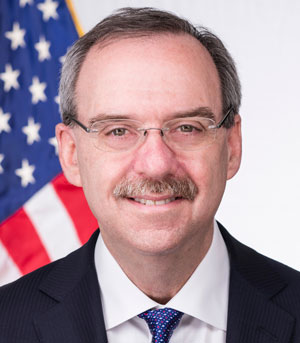
Dr. Lee Fleisher (Moderator)
Chief Medical Officer and Director of the Center for
Clinical Standards and Quality
Centers for Medicare & Medicaid
Services

Jonathan "Jon" Blum
Principal Deputy Administrator
and Chief Operating Officer,
Centers for Medicare & Medicaid Services

Stacey Chang
Former Founding and Executive Director
Design Institute for Health
University of Texas at Austin
Join Dr. Lee Fleisher, Jon Blum and Stacey Chang for an intimate conversation about design thinking and its linkage to resilience. Stacey Chang serves as the executive director of the Design Institute for Health at the University of Texas at Austin. It is a first-of-its-kind institution, dedicated to applying design approaches to solving systemic health care challenges as an integrated part of both an operating health system, and a medical education and training program. Working with invested stakeholders in the health ecosystem, and harnessing the resources of the university, the Institute is focused on creating human-centered solutions in clinical and community environments—all with the intent to improve people’s health outcomes and health care experiences.
 May 2, 2023 04:30 pm
May 2, 2023 04:30 pm
Dr. Lee Fleisher
Chief
Medical Officer and Director of the Center for Clinical Standards and
Quality
Centers for Medicare & Medicaid Services
 May 3, 2023 12:00 pm
May 3, 2023 12:00 pm
Jean Moody-Williams, RN, MPP
Deputy Center Director
Center for Clinical
Standards and Quality
Centers for Medicare & Medicaid
Services
 May 3, 2023 12:05 pm
May 3, 2023 12:05 pm
Dr. Nimalie D. Stone, MD, MS
Senior Advisor for Long term Care
Partnerships
Division of Healthcare Quality Promotion
Centers for
Disease Control and Prevention

Dr. Michael Wasserman, MD, CMD
Geriatrician
Chair, Public Policy
Committee
California Association of Long-Term Care Medicine

Angela Vassallo, MPH, MS, CIC, FAPIC
Infection Prevention and Epidemiology Expert
Angela
Vassallo, LLC
Board member, Association for Professionals in Infection
Control and Epidemiology

Dr. Swati Gaur, MD, MBA, CMD, AGSF
Chief Medical Officer, Senior Care Office
Medical
Director, Post-Acute Care
Northeast Georgia Health System
This presentation is specific for infection preventionist to learn and share implementation best practices in nursing home Infection Prevention Control (IPC)
 May 3, 2023 12:35 pm
May 3, 2023 12:35 pm
Gary Puckrein, PhD
President and
Chief Executive Officer
National Minority Quality Forum

Joe Silva, ScM
PhD
student
Brown University

Chad Worz, PharmD, BCGP, FASCP
Chief Executive
American Society of Consultant
Pharmacists
The National Minority Quality Forum (NMQF), in working with the Centers of Disease Control, has created options to continue to build on partnerships and methods created during this pandemic to improve minority health. NMQF is seeking to expand a successful disparities reduction vaccine model established in Baltimore by Dr. Terris King in partnership with the Johns Hopkins International Vaccine Center and Baltimore Cities Health Department. This model improved vaccination rates by 13%. While efforts to address the impact of disparities on vaccination rates in nursing homes is important, this must only serve as an entry point into addressing the broader issue of poor quality that has and will continue to be related to disparities in nursing homes across the country. This workshop will present successful models and allow for the discussion of future approaches to enhancing vaccination rates not only in nursing homes, but across all communities of color.
 May 3, 2023 01:05 pm
May 3, 2023 01:05 pm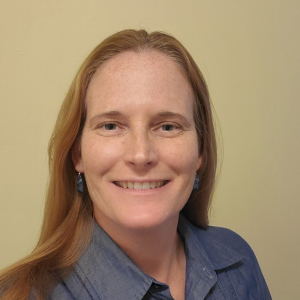
Michelle Veach (Moderator)
Life
Safety Engineer
Center for Medicare and Medicaid Services

Elizabeth Sholar, NHZ, MSH
Director of Health Services
Vicar’s
Landing

Jen Salter, MS, LNHA, CPHRM
Director of Operations
Century Care
Management
This session will focus on Emergency Preparedness and Resilience for long-term care including information and resources to help members respond to an emergency in a timely, organized, and effective manner
 May 3, 2023 01:35 pm
May 3, 2023 01:35 pm May 3, 2023 01:40 pm
May 3, 2023 01:40 pm
CAPT Hyosim Seon-Spada, DNP, USPHS
Survey, and Long-term Care Branch Manager
Centers
for Medicare and Medicaid Services

Jennifer Wieckowski, MSG
Senior
Executive Director
Health Services Advisory Group
Centers for Medicare & Medicaid Services (CMS) Quality Innovation Network
Nursing homes are required to develop, implement, and maintain an effective, comprehensive, and data-driven Quality Assurance & Performance Improvement (QAPI) program to improve the quality of life and quality of care delivered to nursing home residents. This session will provide an overview of QAPI, discuss challenges and opportunities in the QAPI process, describe expectations for governing boards, and describe effective program implementation for nursing homes. Attendees will be given access to tools and resources to assist nursing homes in developing an effective QAPI program, which is the foundation of a strong quality improvement program. Nursing homes can use these tools as they problem-solve, address new challenges, and strive to embed sustainable QAPI principles and performance improvement projects (PIPs) into their day-to-day work and culture.
 May 3, 2023 02:10 pm
May 3, 2023 02:10 pm
Alice Bonner
Senior Advisor for
Aging
Institute for Healthcare Improvement

Harvey Wells
Resident
The
Cedars, Portland, ME
This session will review how nursing homes can join the Age-Friendly Health Systems (AFHS) movement to improve health outcomes for older residents while improving workflow for nursing home teams. An overview will be provided of the AFHS 4Ms Framework – what Matters, Medication, Mentation, and Mobility – and a nursing home resident receiving age-friendly care will share experiences. Examples will be given from participating sites, two other nursing home initiatives will be introduced, and participants will learn practical next steps on how to collaborate with others to promote age-friendly nursing home care.
 May 3, 2023 02:40 pm
May 3, 2023 02:40 pm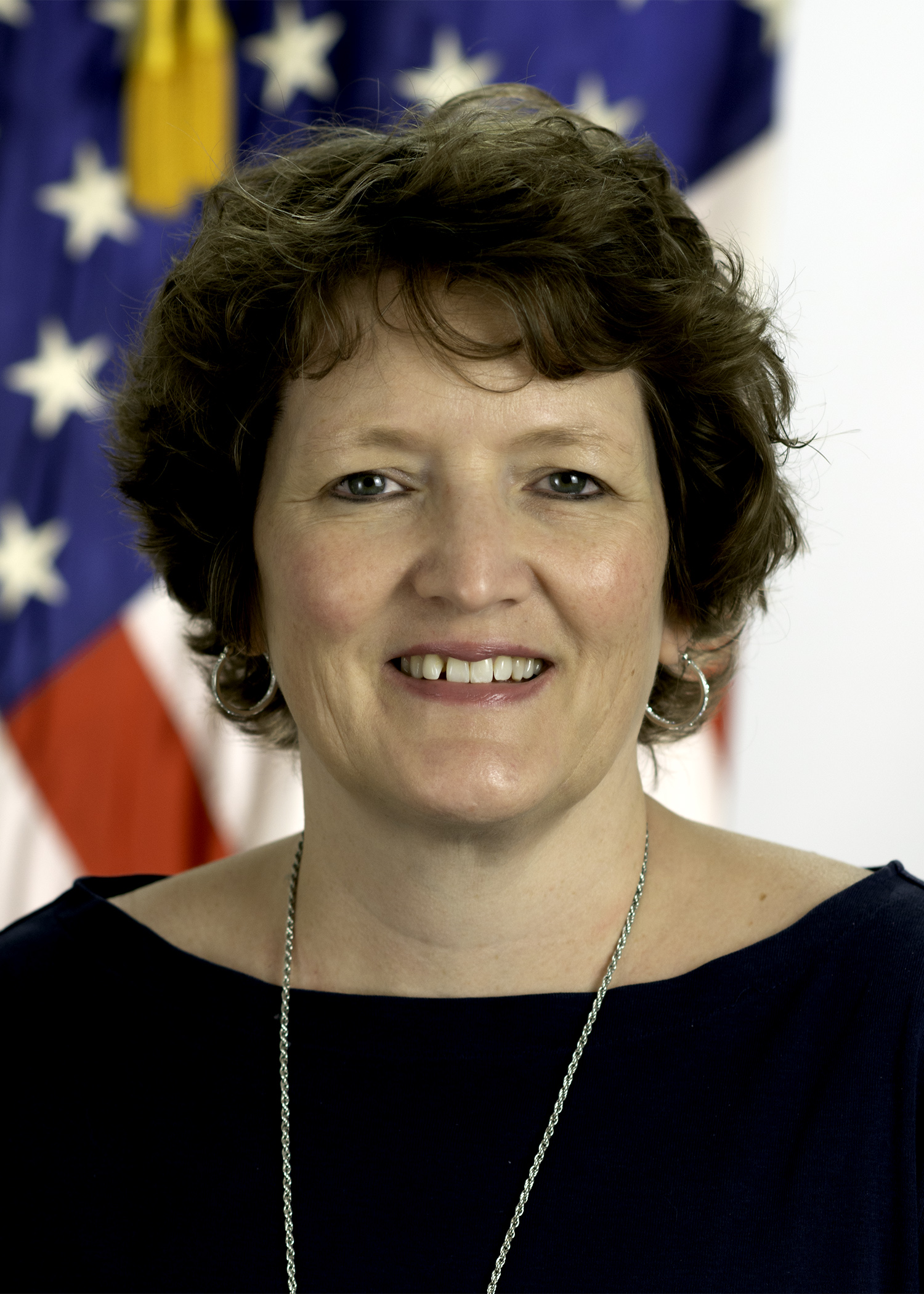
Heidi Magladry, RN
Skilled
Nursing Facility Quality Reporting Program
Coordinator
Centers for
Medicare and Medicaid Services

Alexandre Laberge, PhD, PT, MBA
Senior Policy Advisor PAC VBP Program
Centers for
Medicare and Medicaid Services

Colleen Frey, RN, MSN, CPHQ
Acting Director
Division of Community and
Population Health
Centers for Medicare and Medicaid Services

Alpha Wilson
Technical
Advisor
Centers for Medicare and Medicaid Services
This session will focus on the Federal levers and
authorities to advance equity in long term care including:
 May 3, 2023 03:10 pm
May 3, 2023 03:10 pm
JoVonn H. Givens, MPH
Task Order
Director
Alliant Health Solutions
Attendees will have the opportunity to learn more about workforce resiliency and the importance of engaging their staff. The concept of behavioral science will be reviewed and how this can be used to understand people’s behaviors. Furthermore, practical examples of ways to increase resiliency and engagement from leadership and peers will be shared.
 May 3, 2023 03:40 pm
May 3, 2023 03:40 pm
Jean Moody-Williams, RN, MPP
Deputy Center Director
Center for Clinical
Standards and Quality
Centers for Medicare & Medicaid
Services